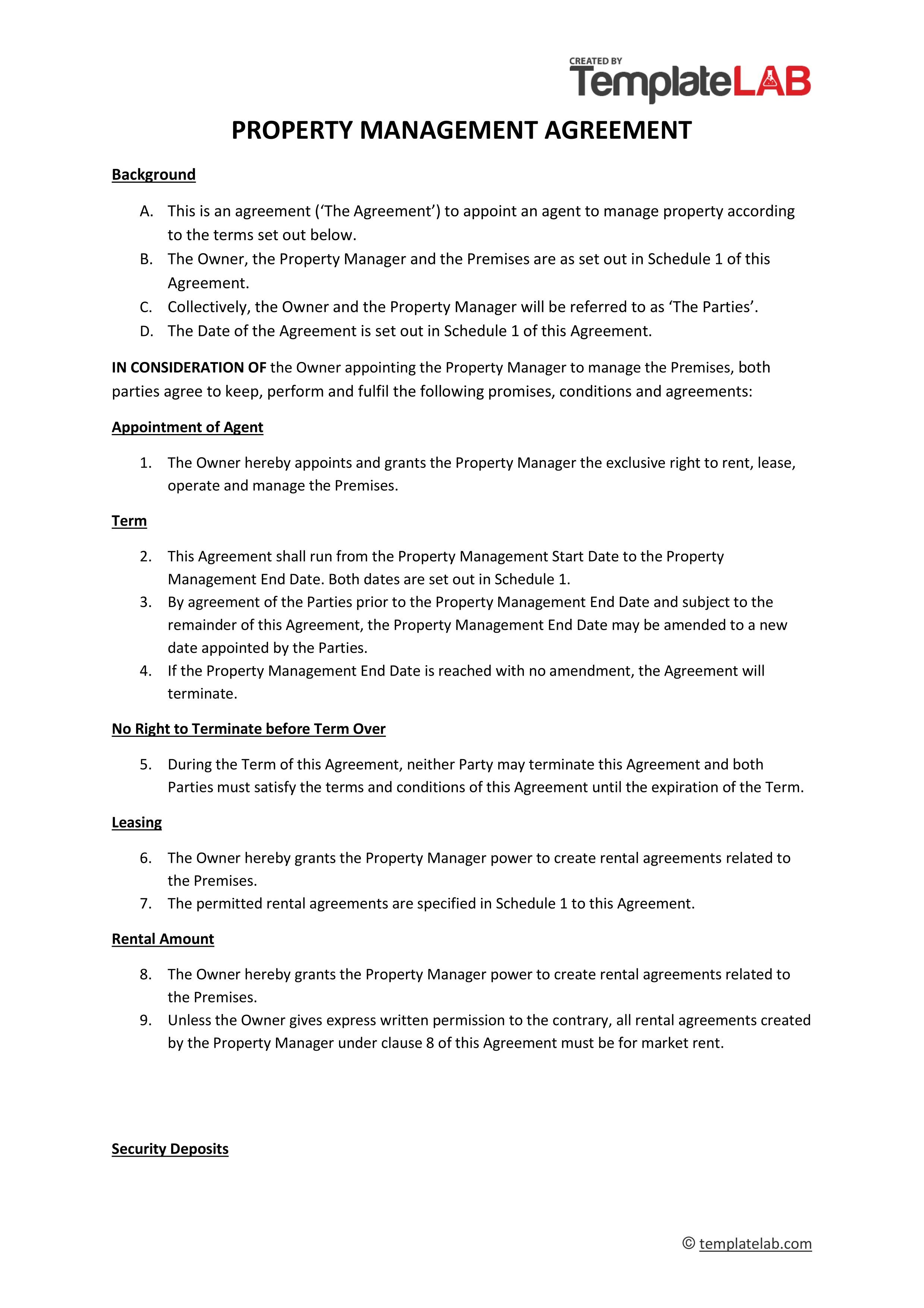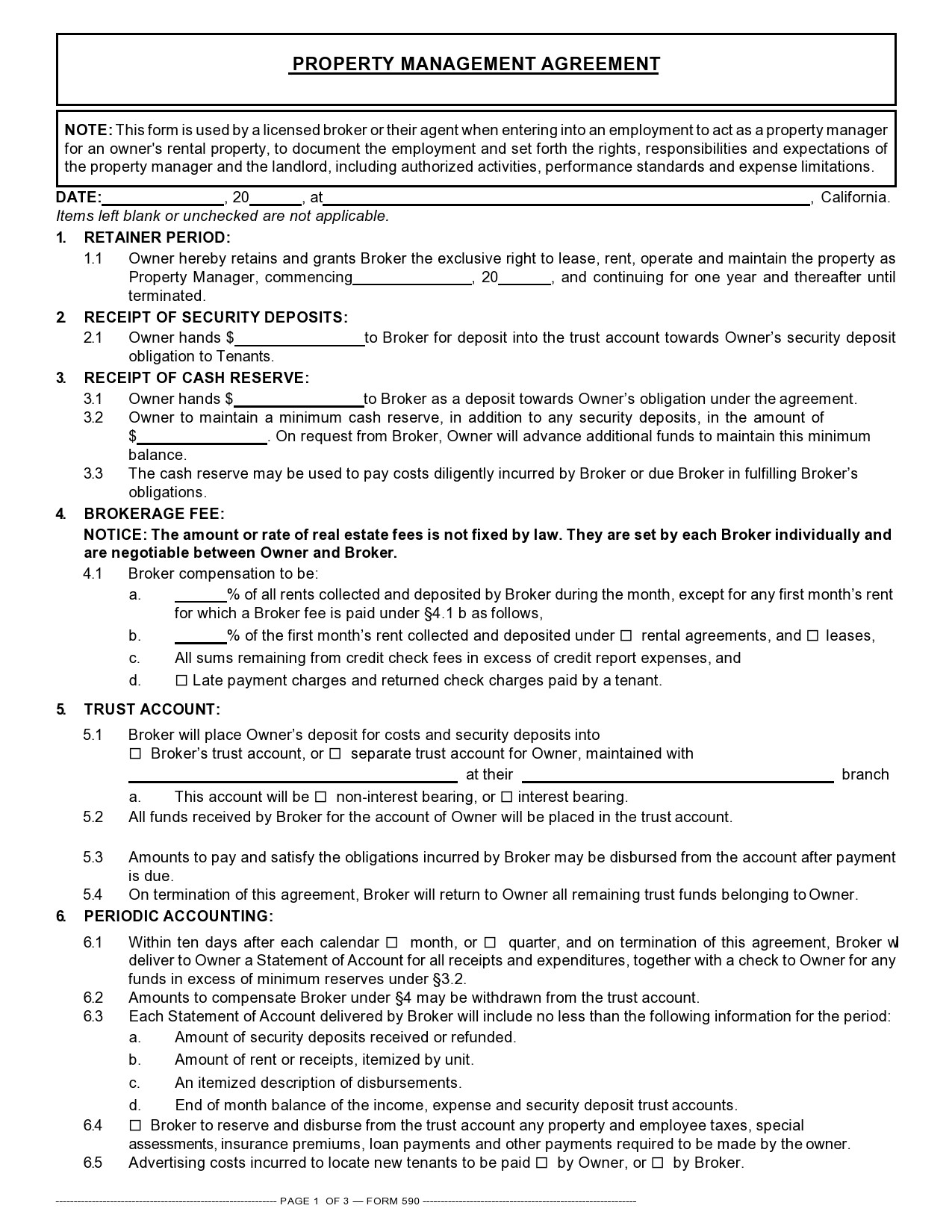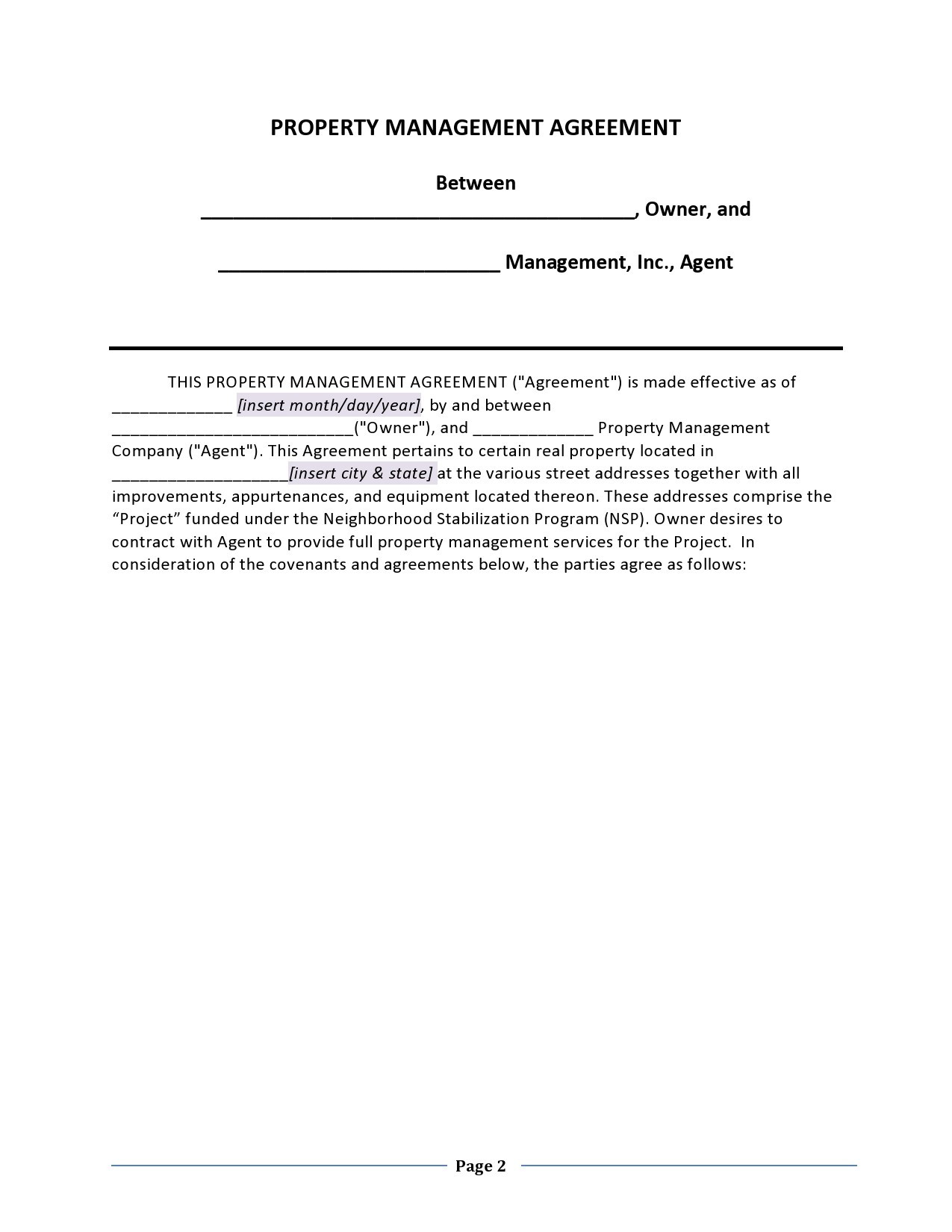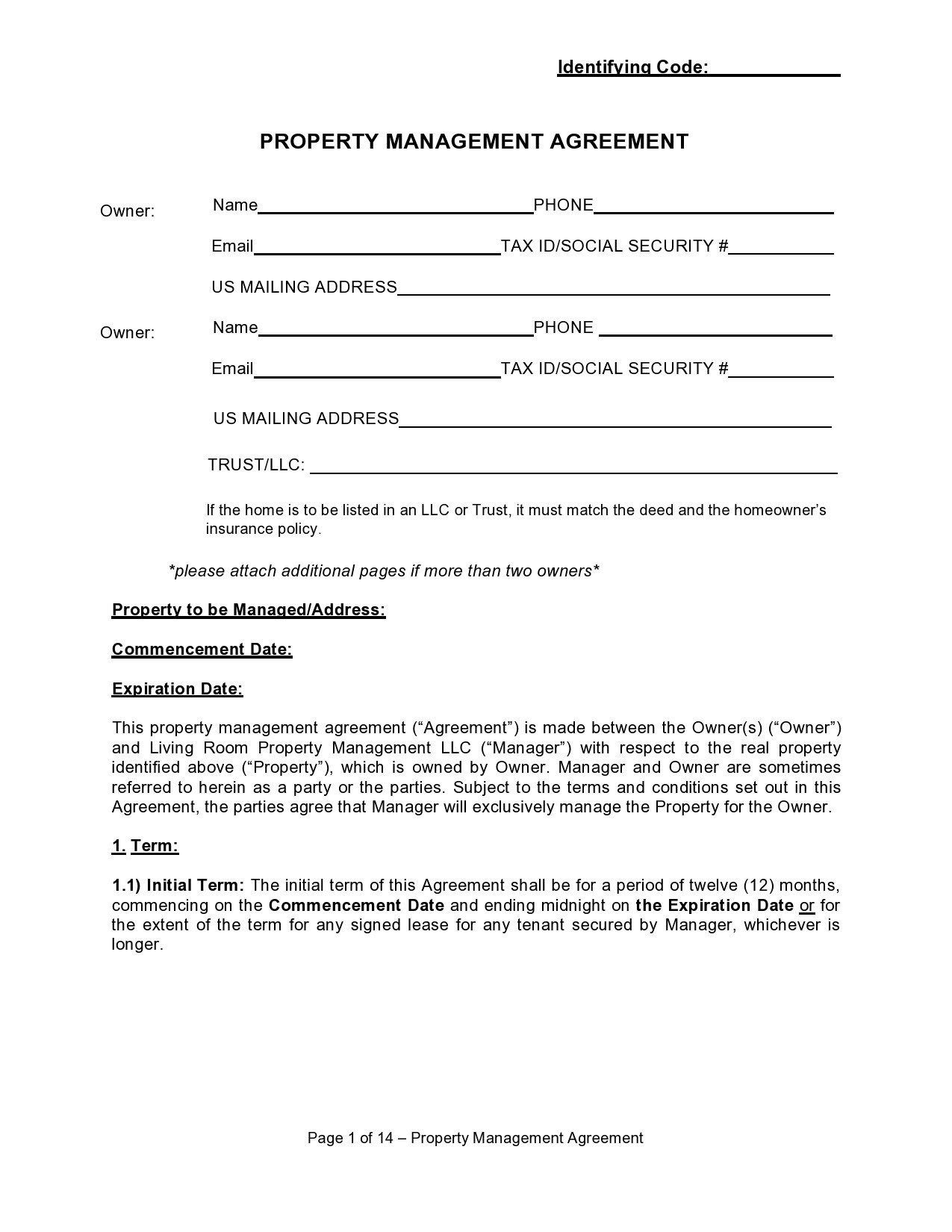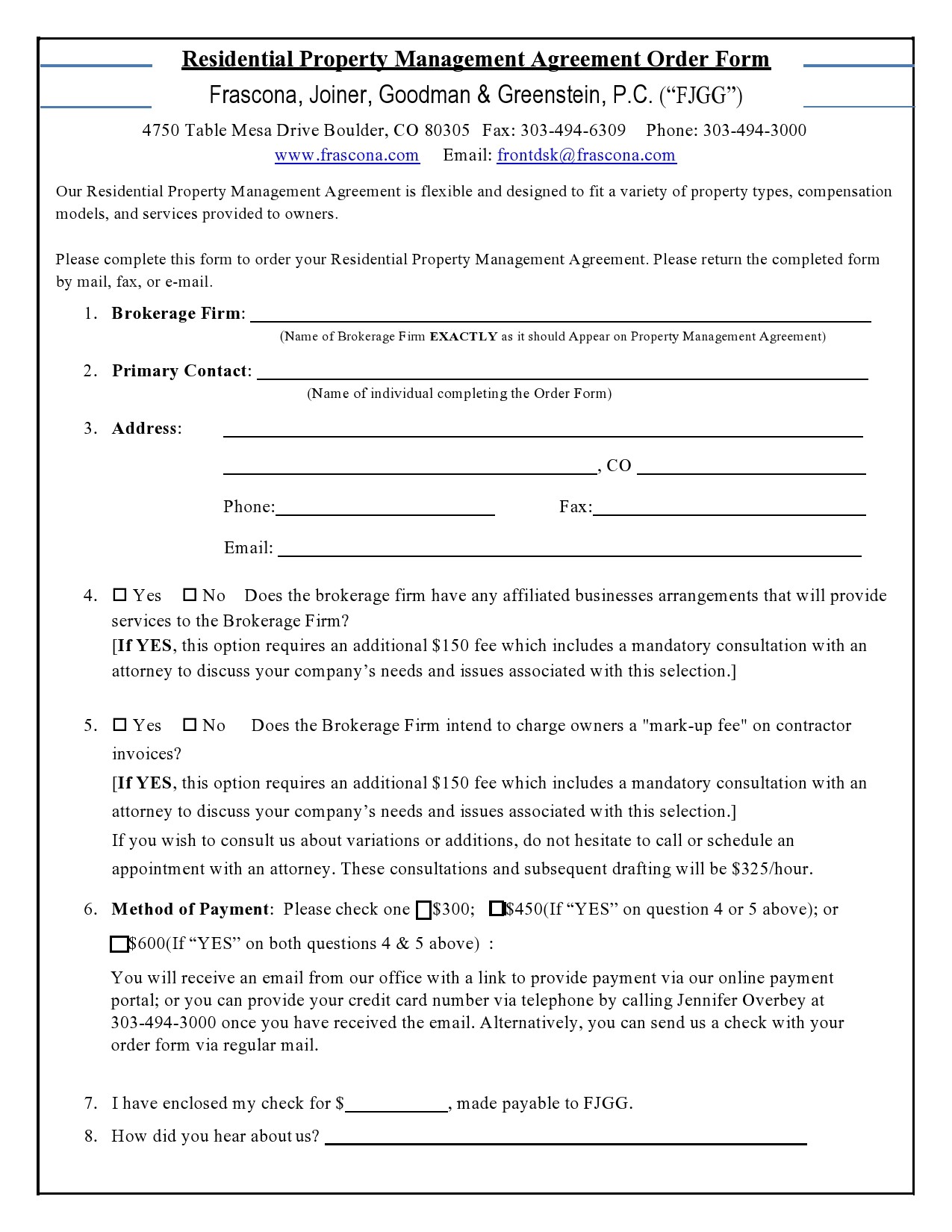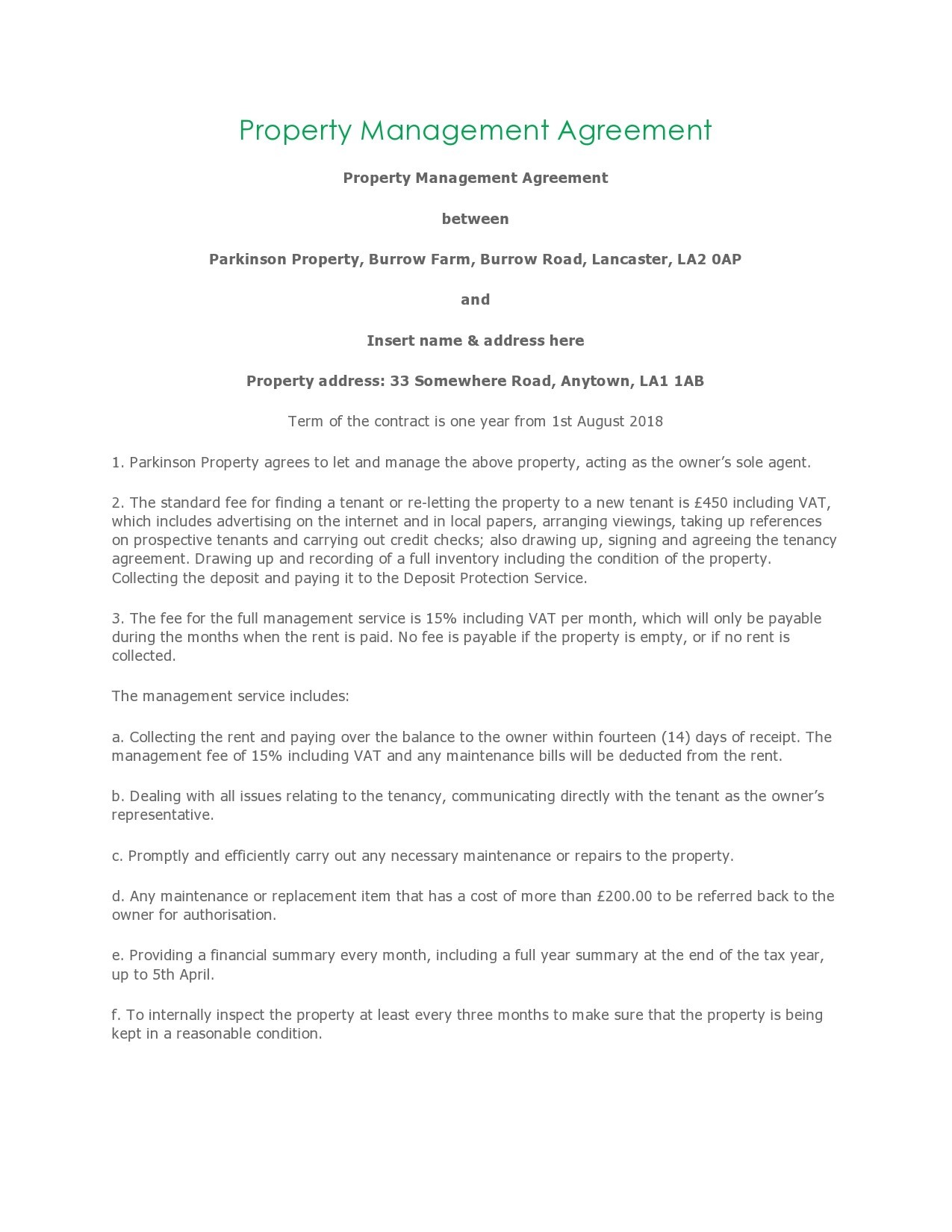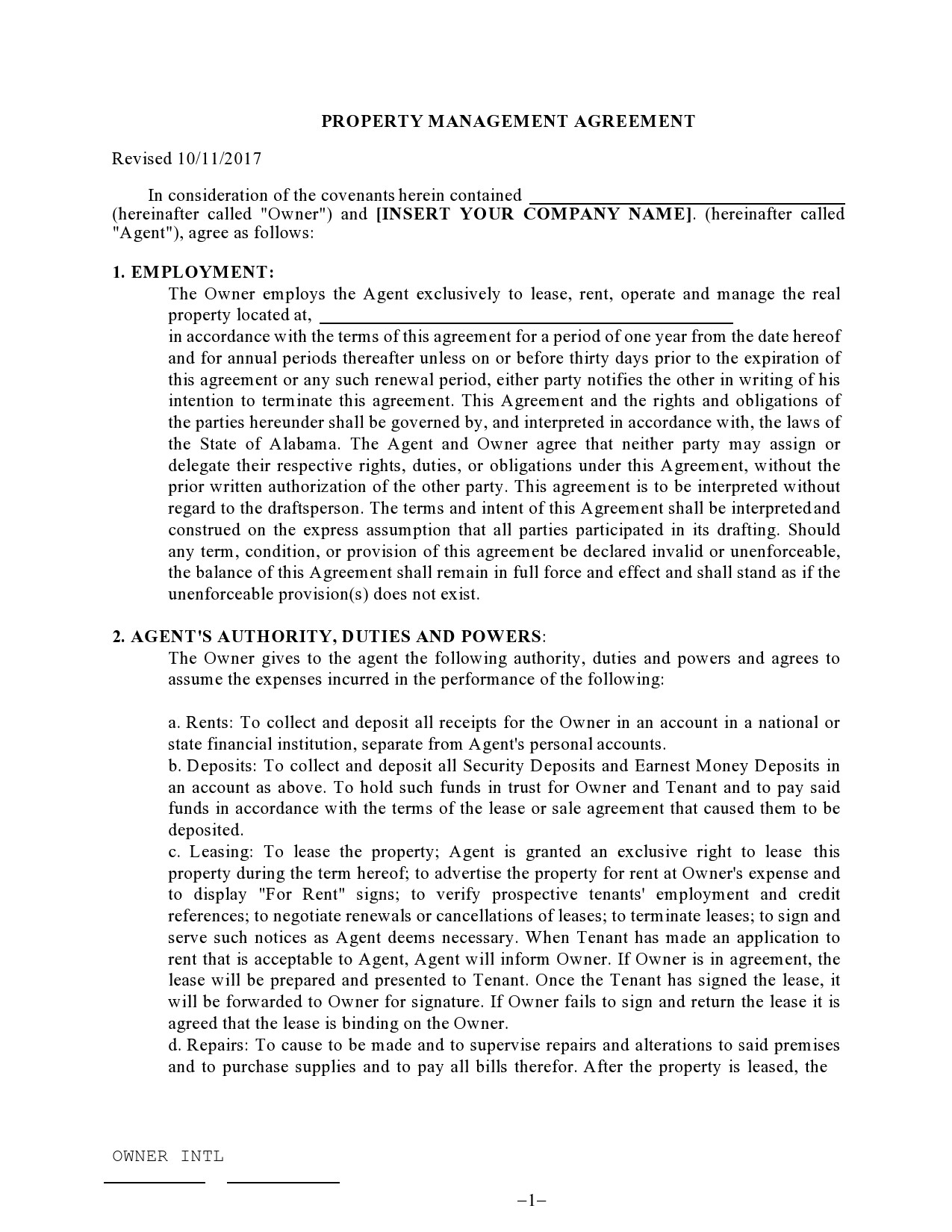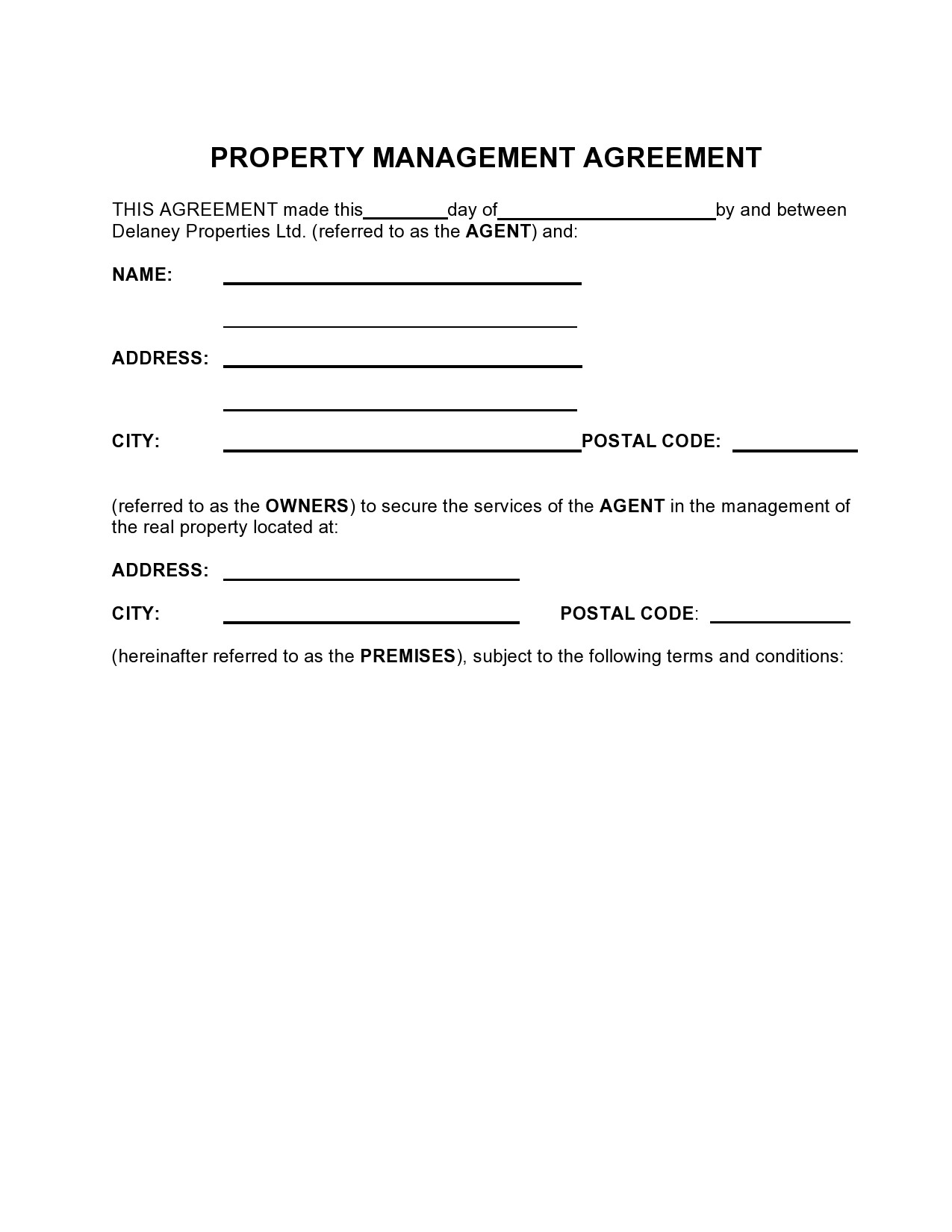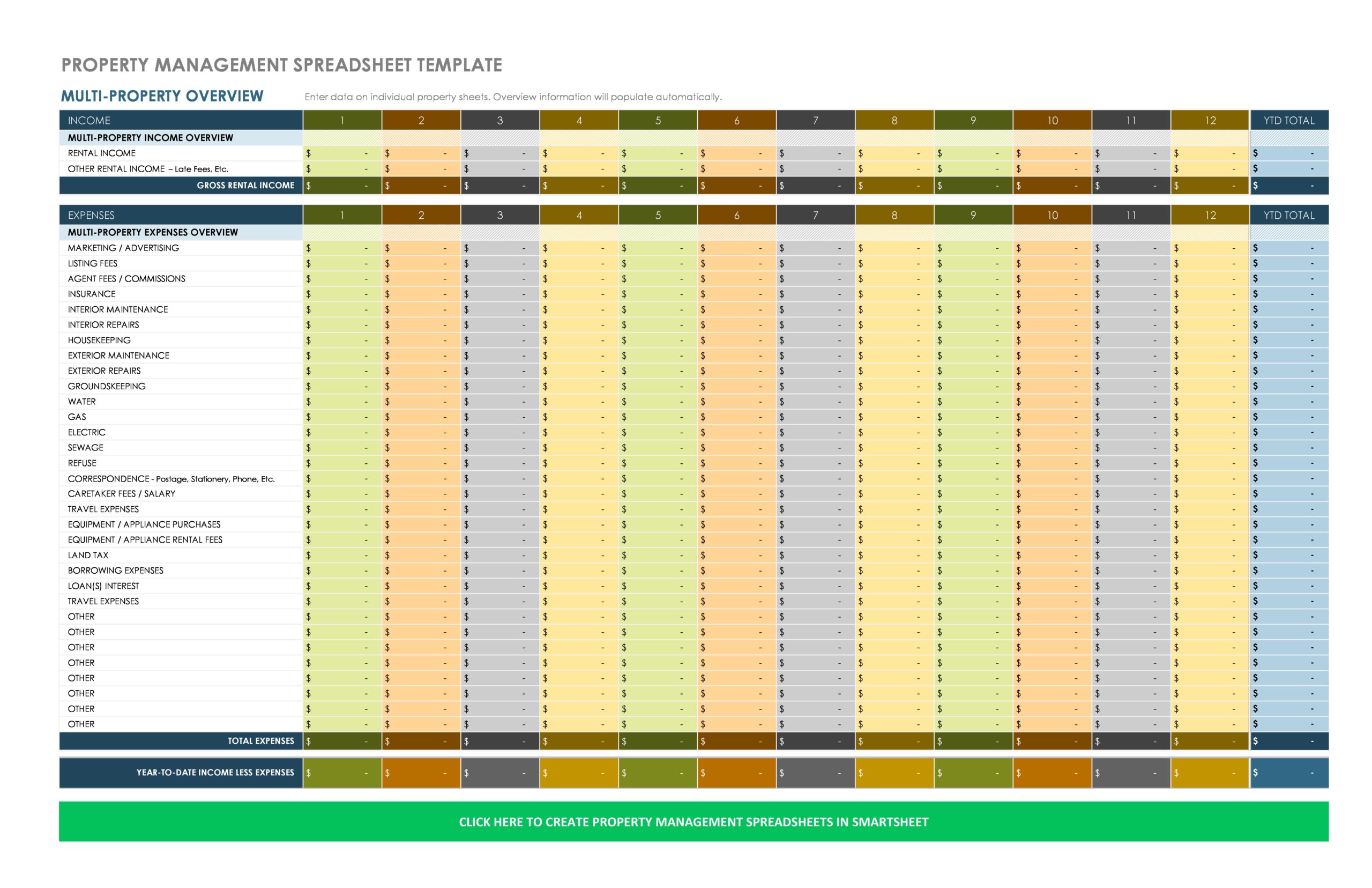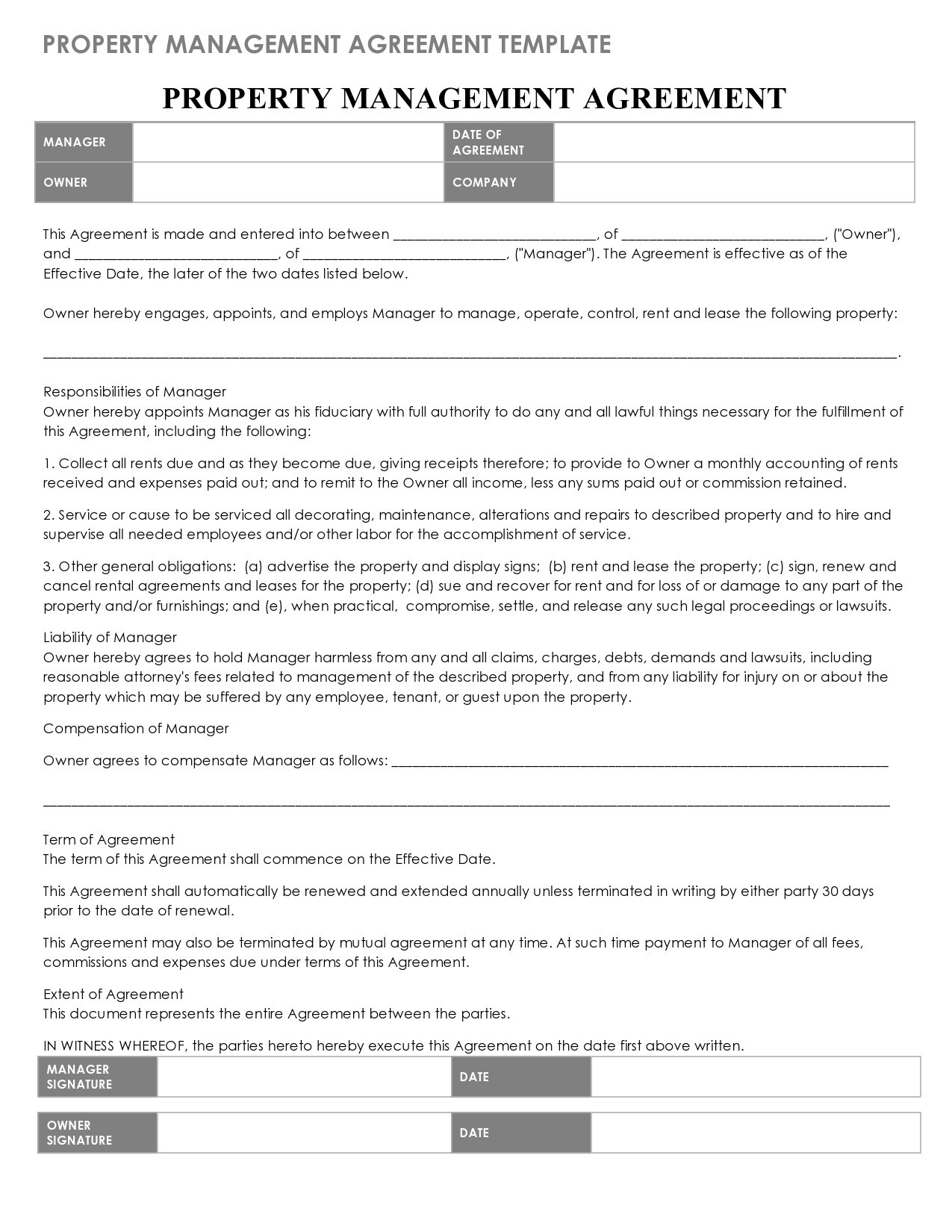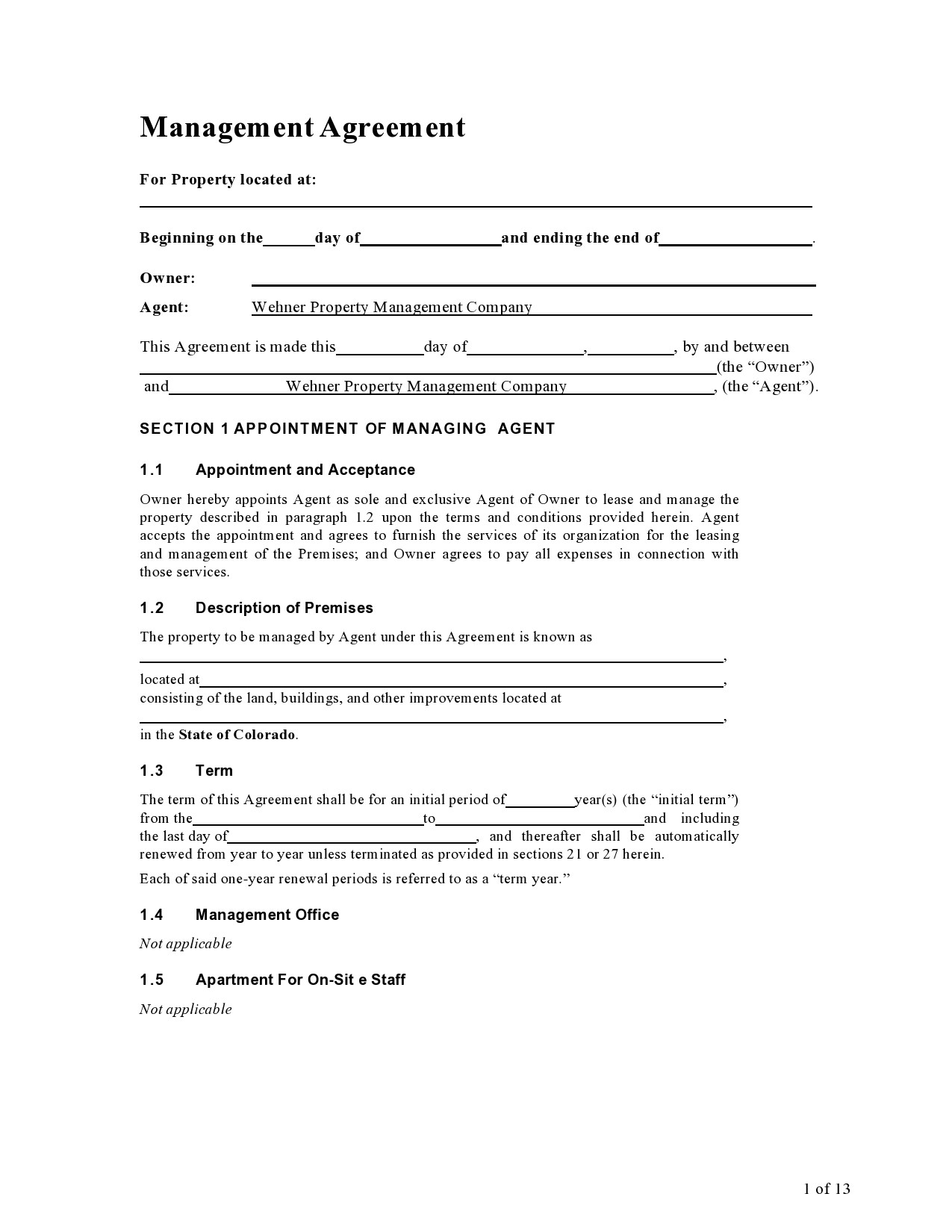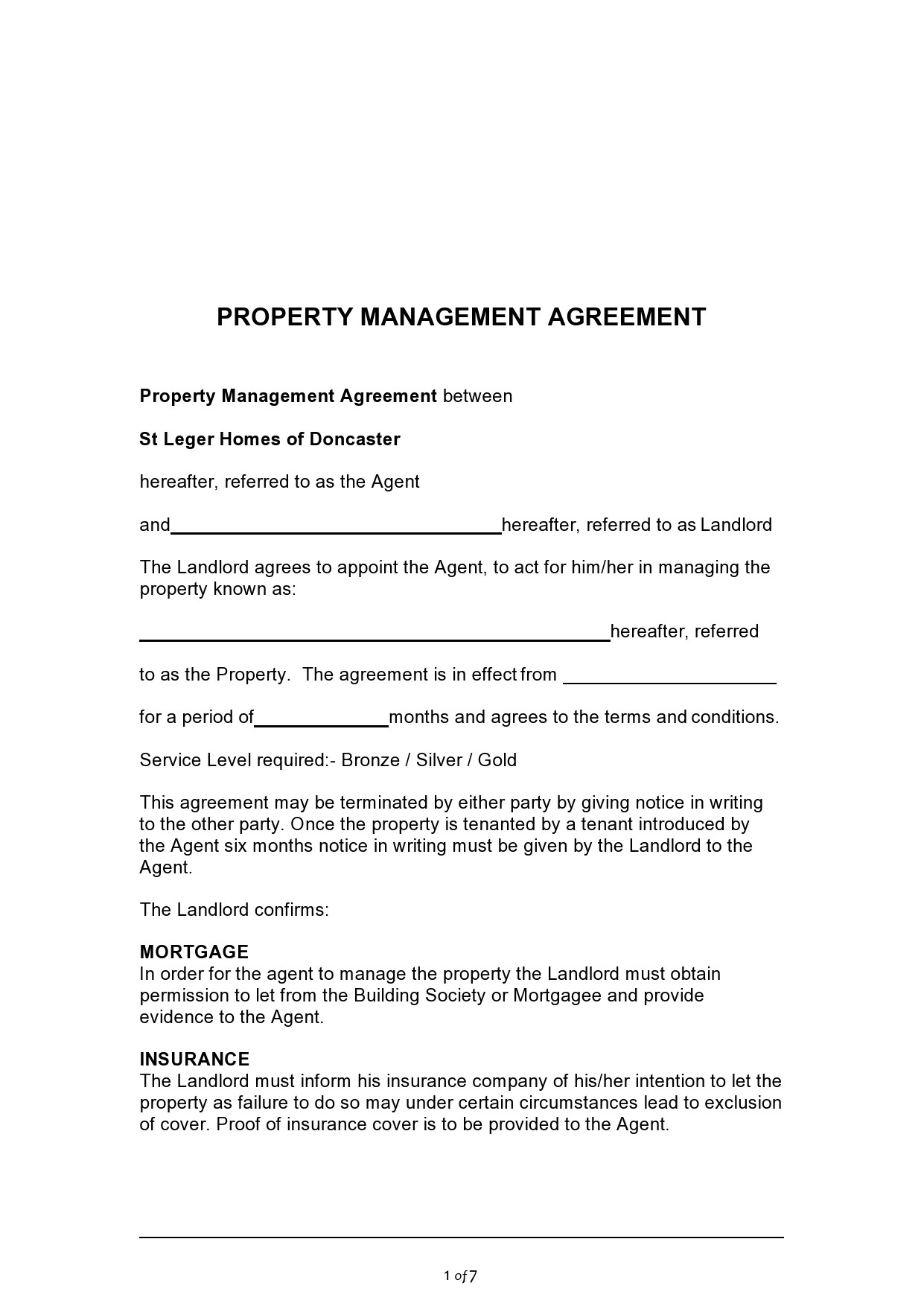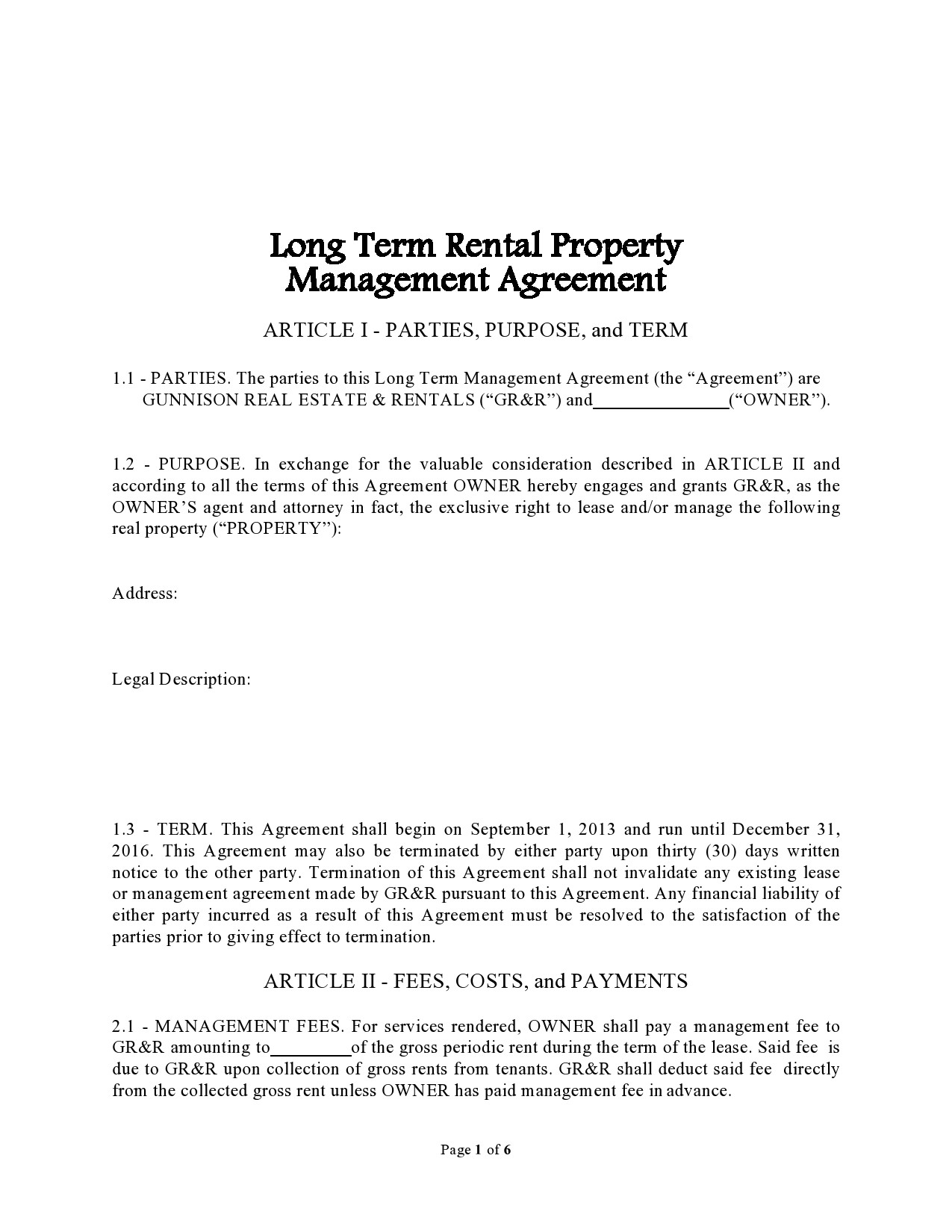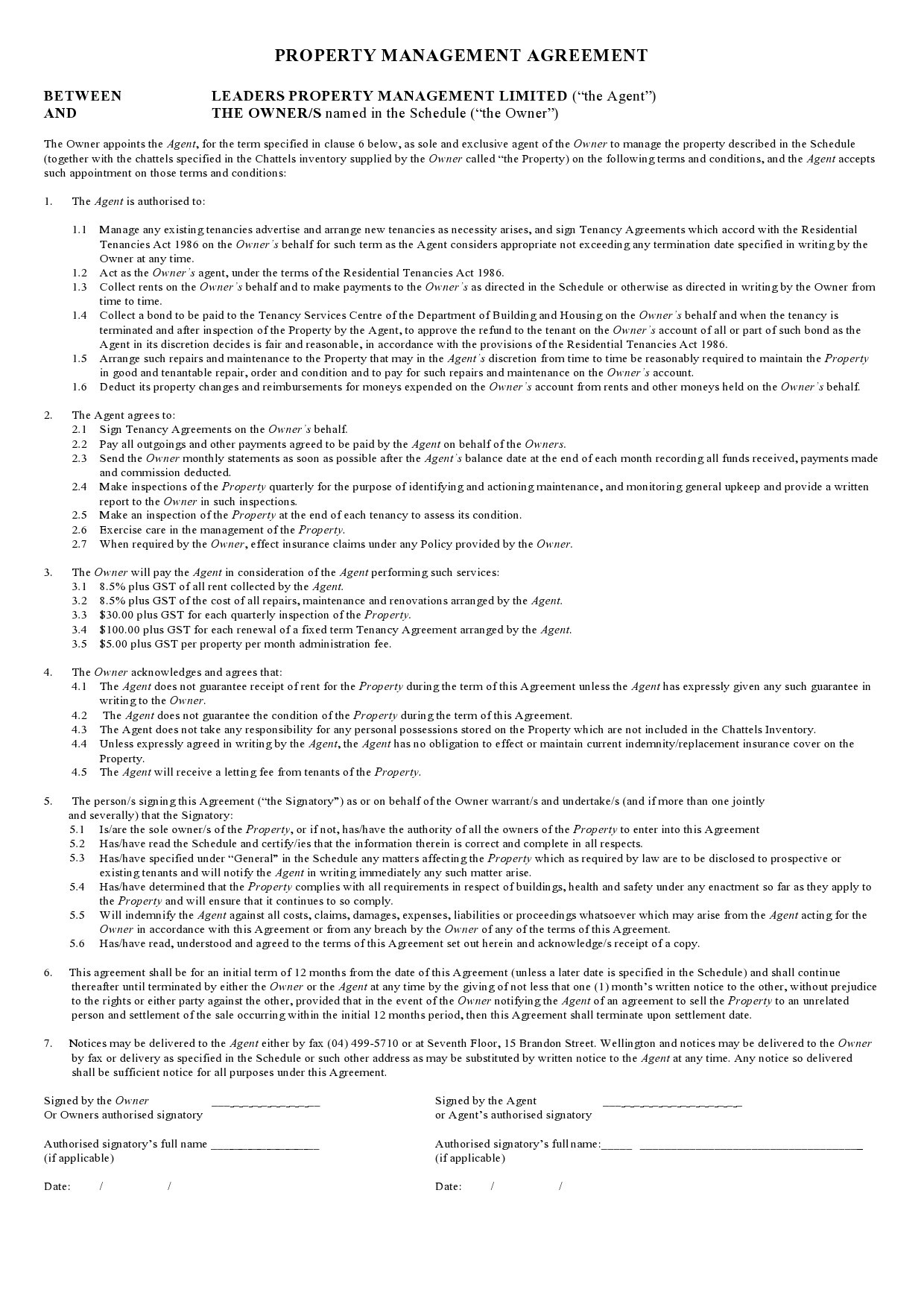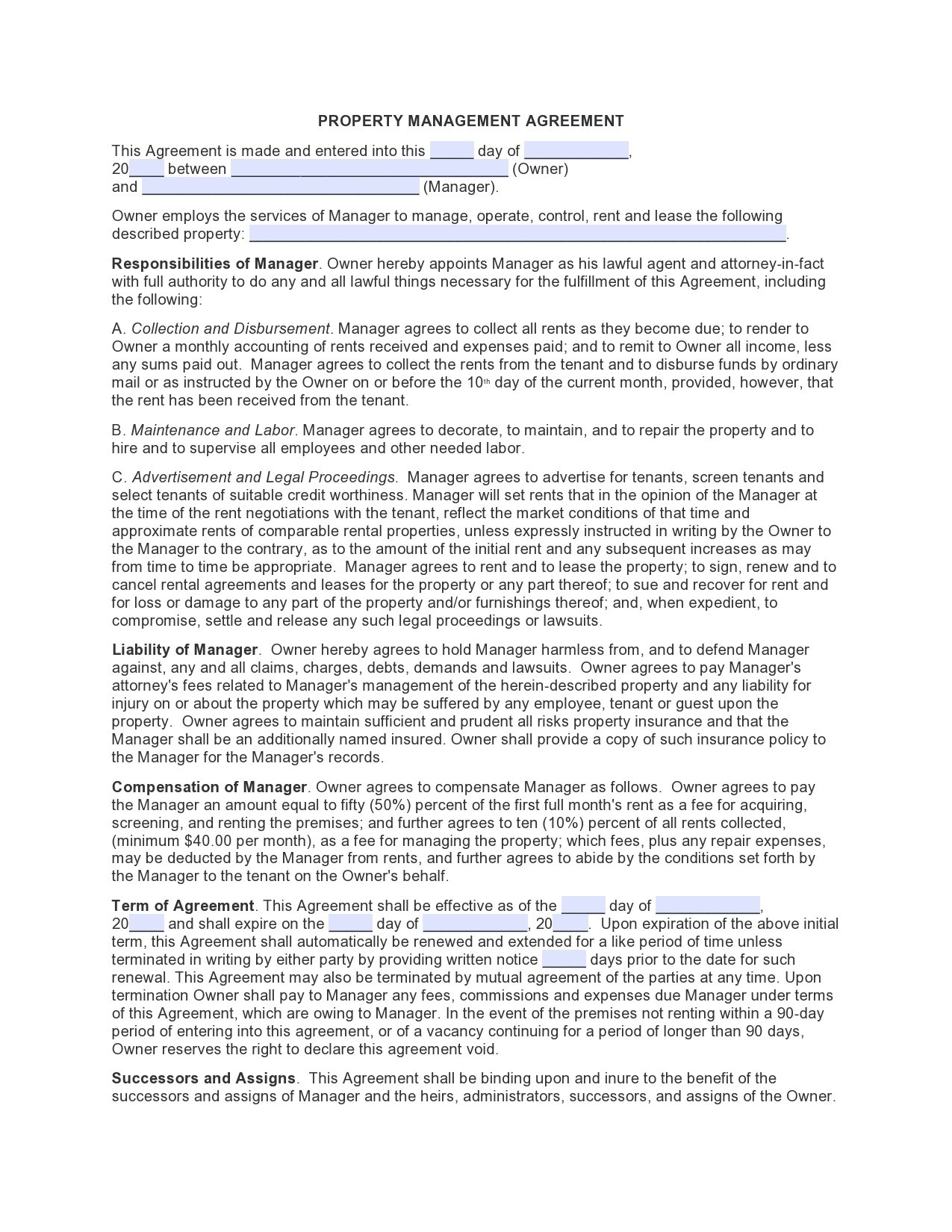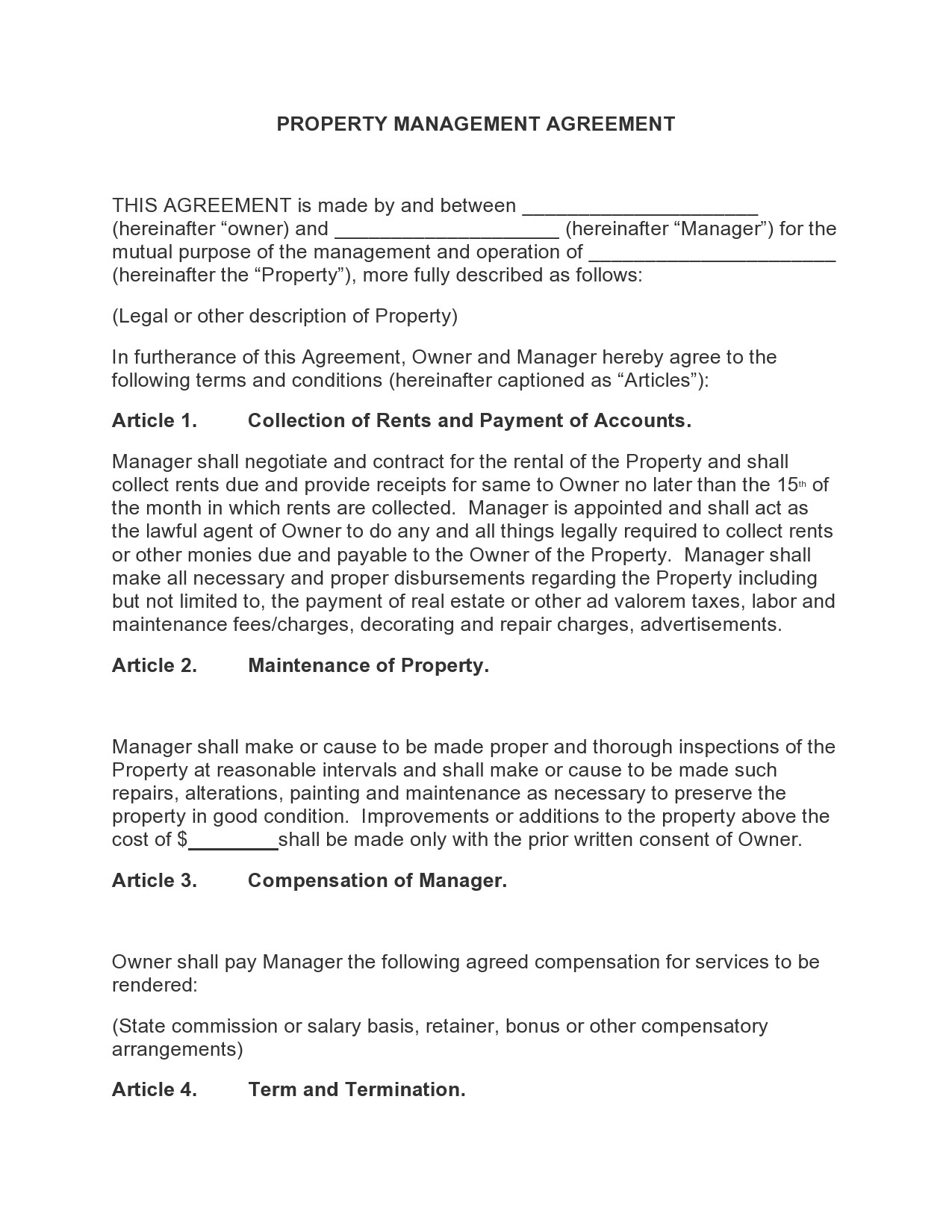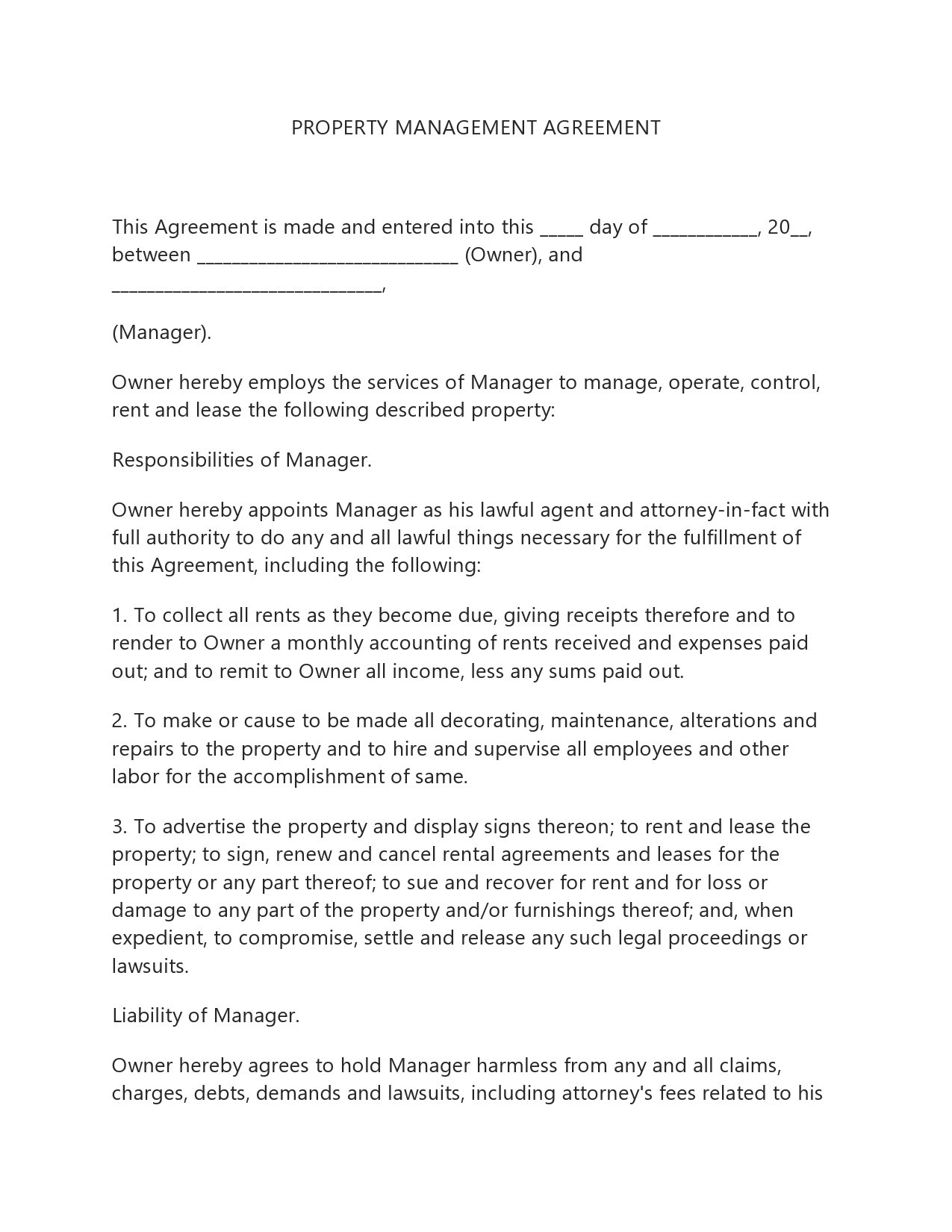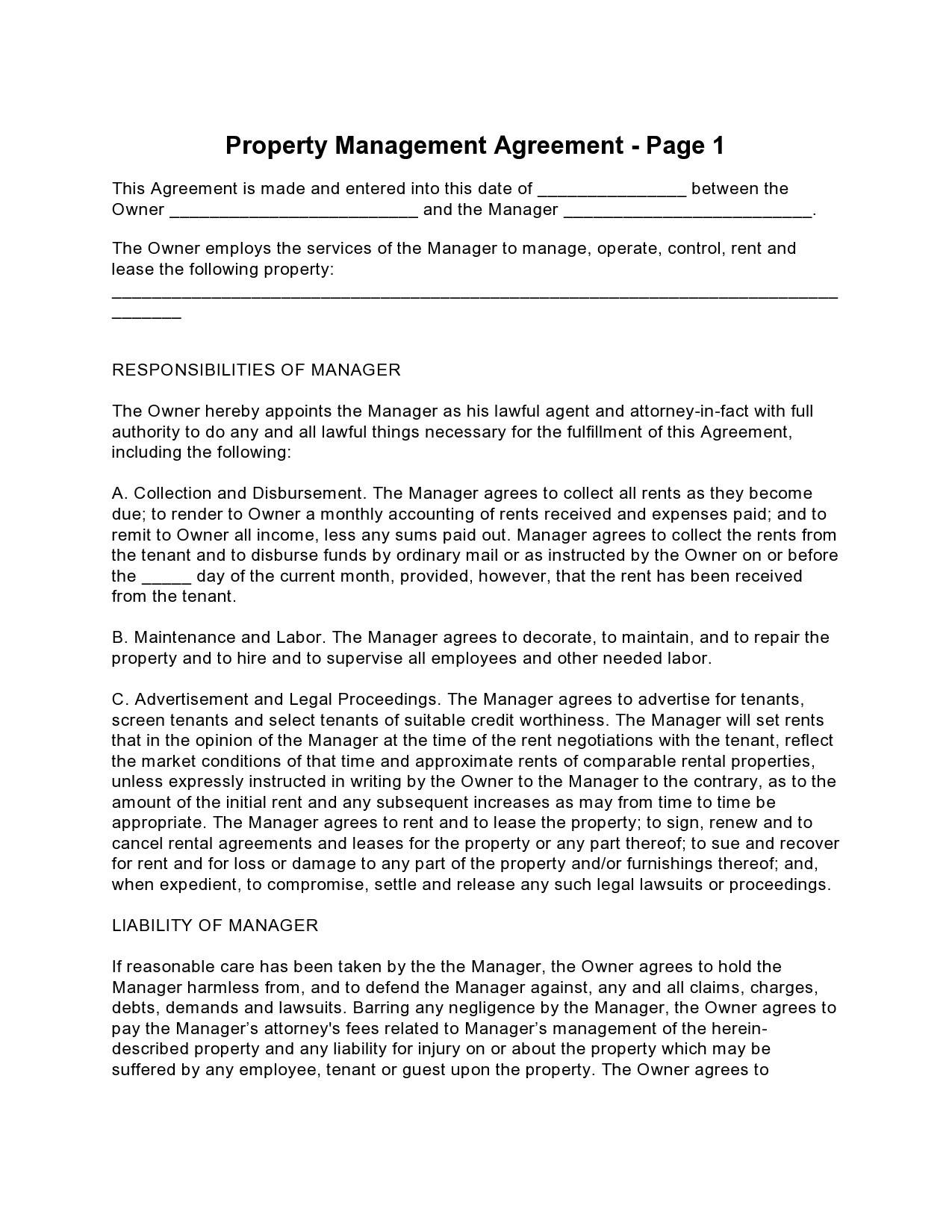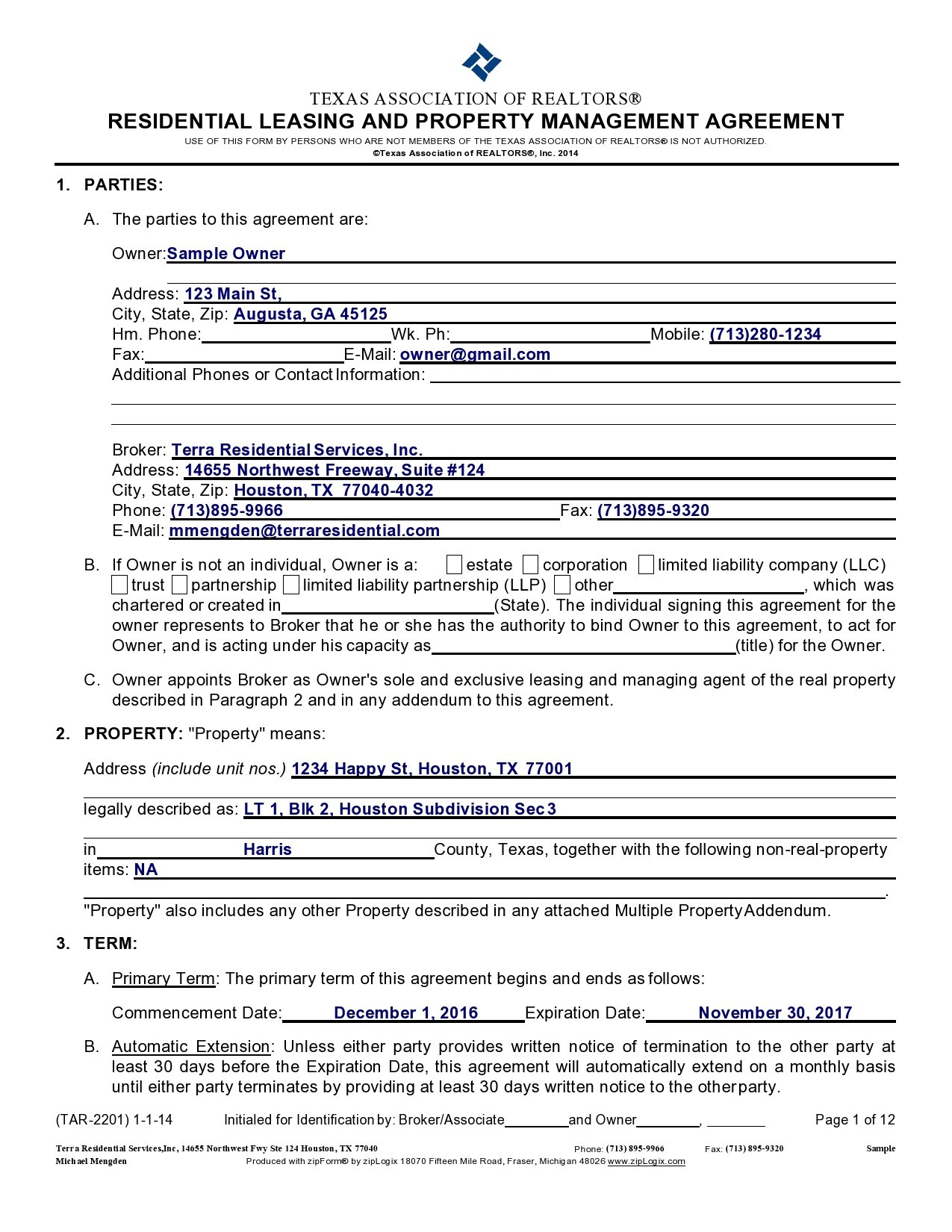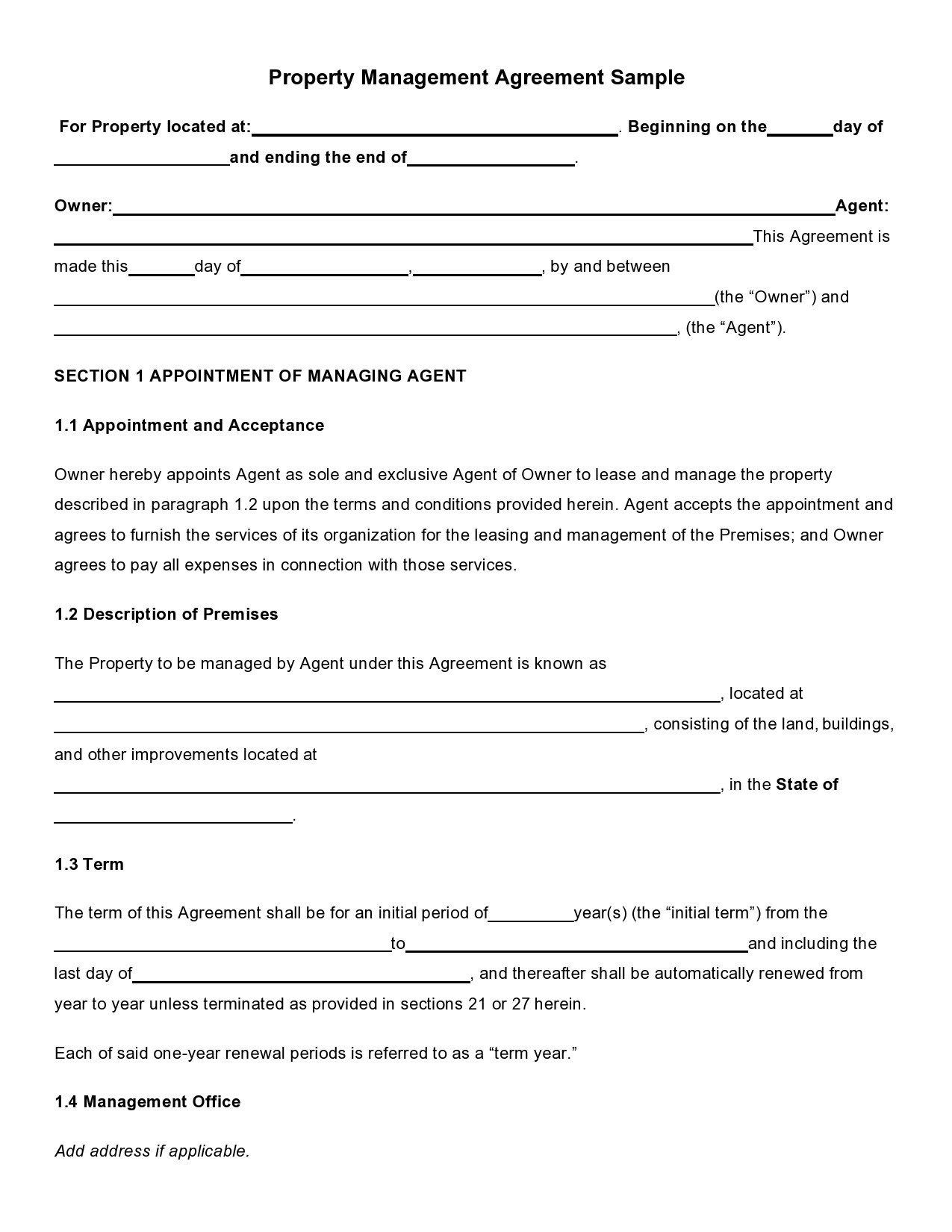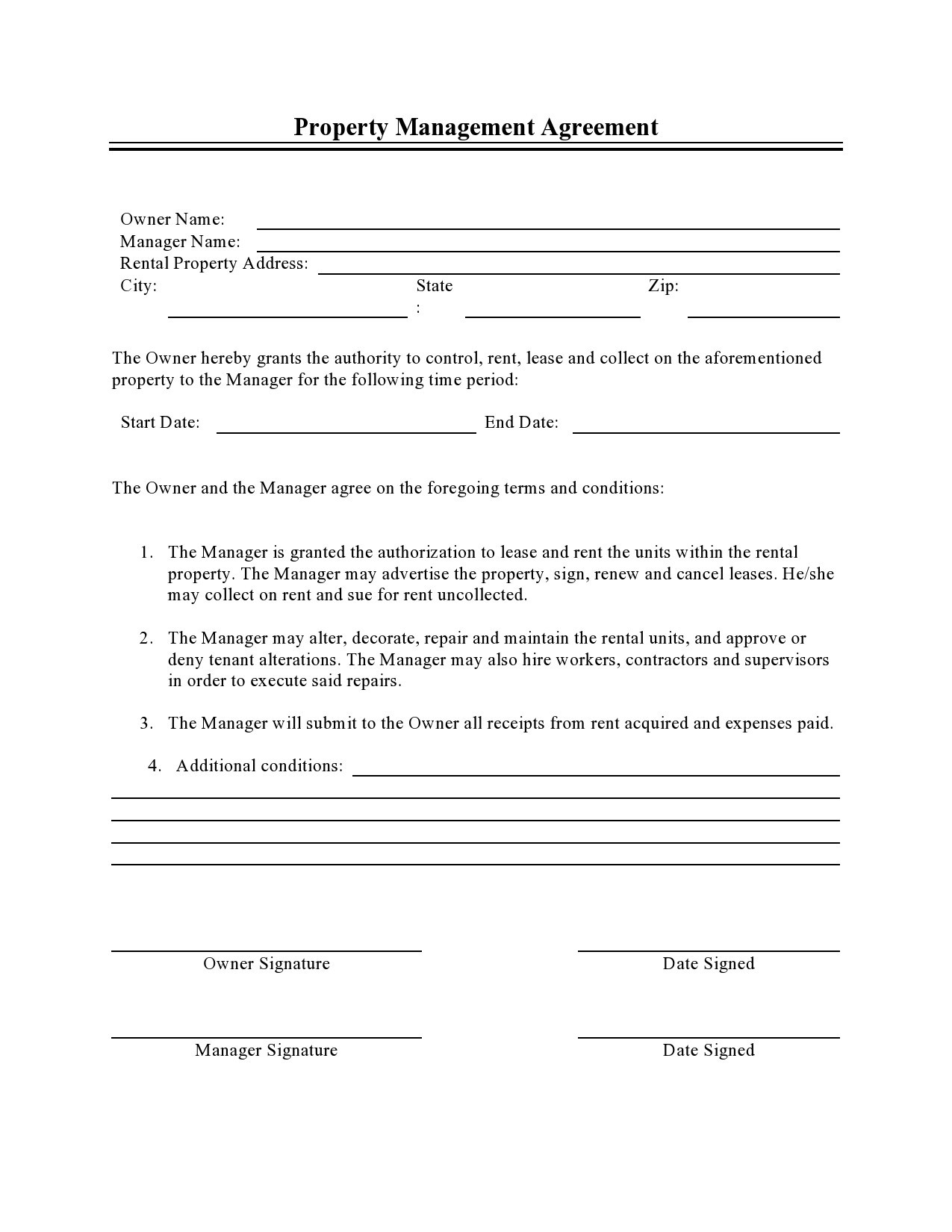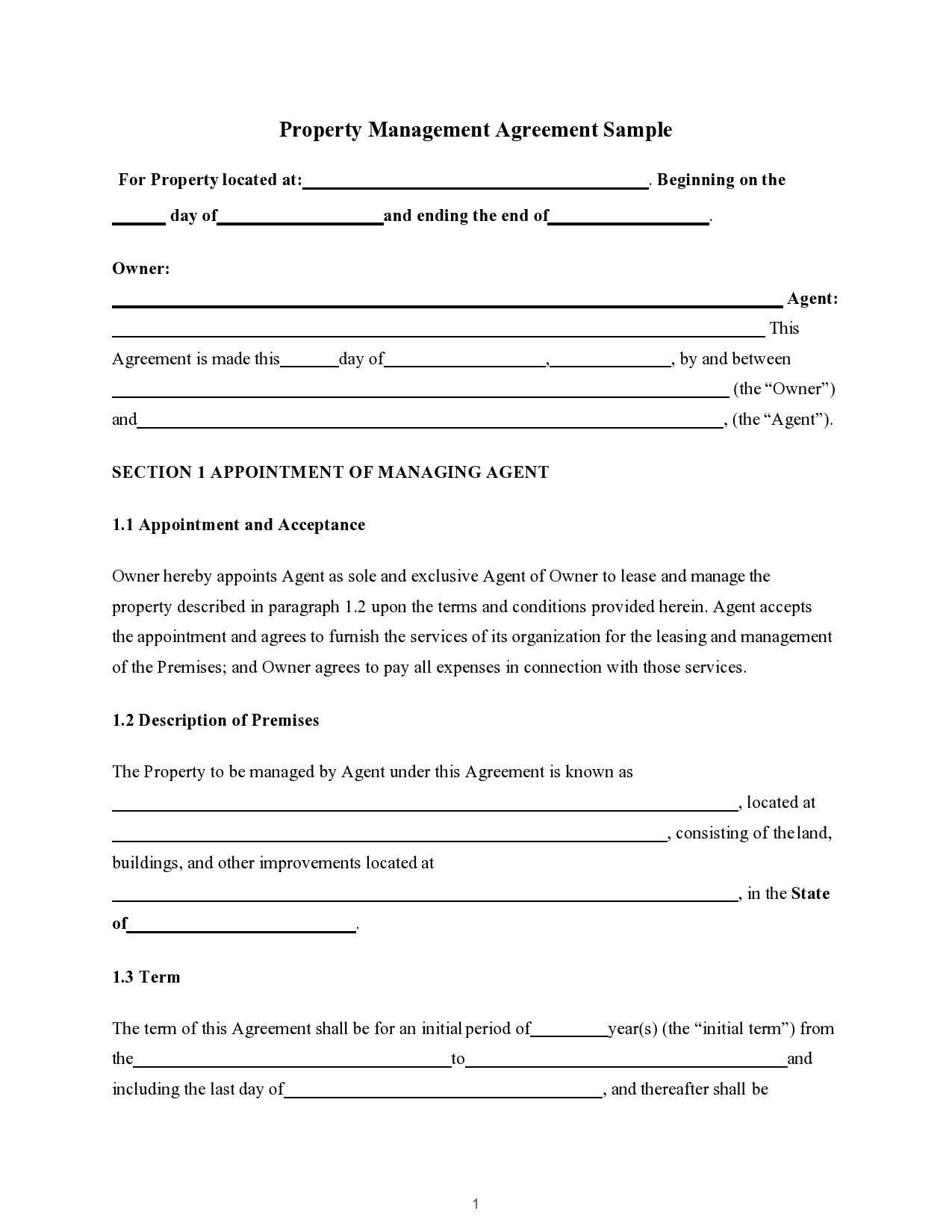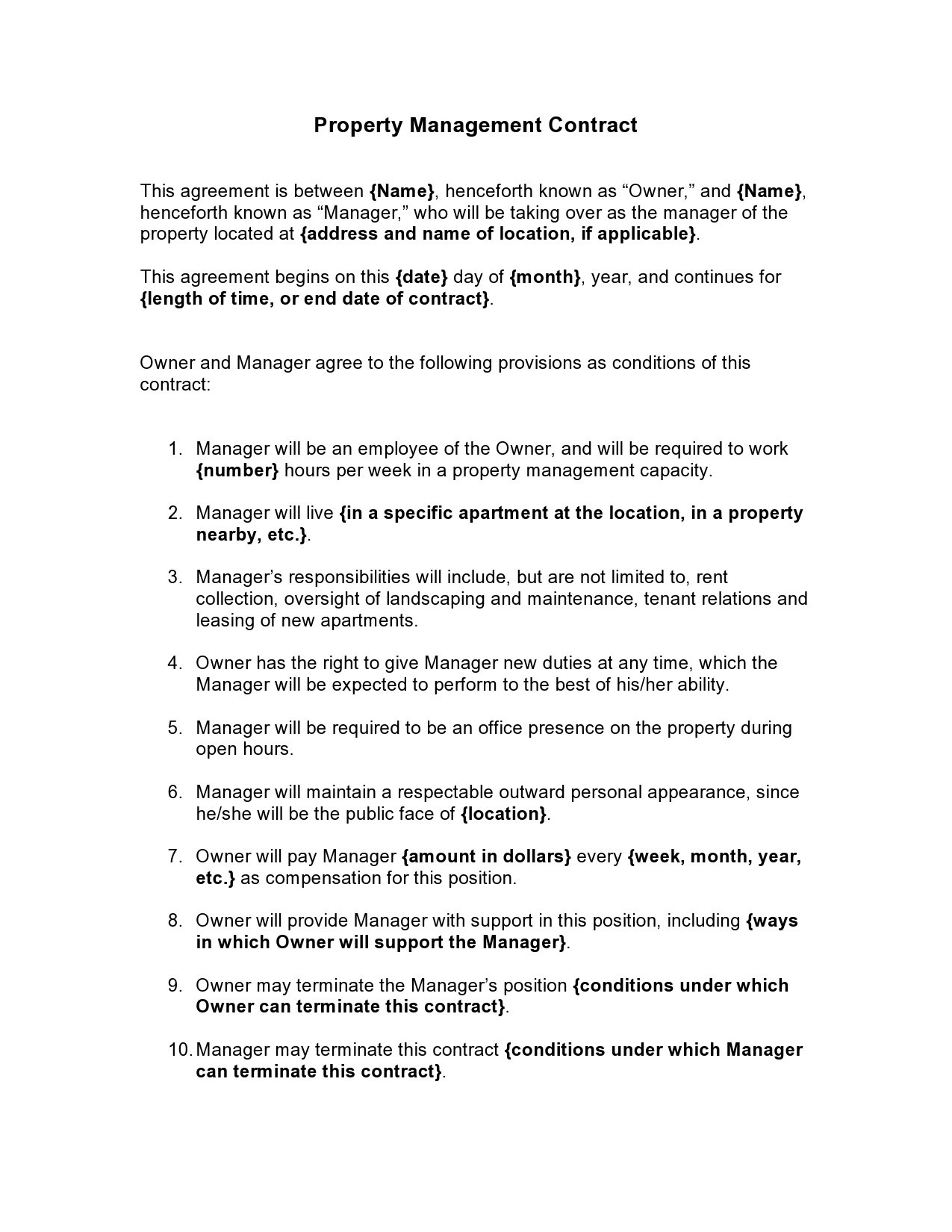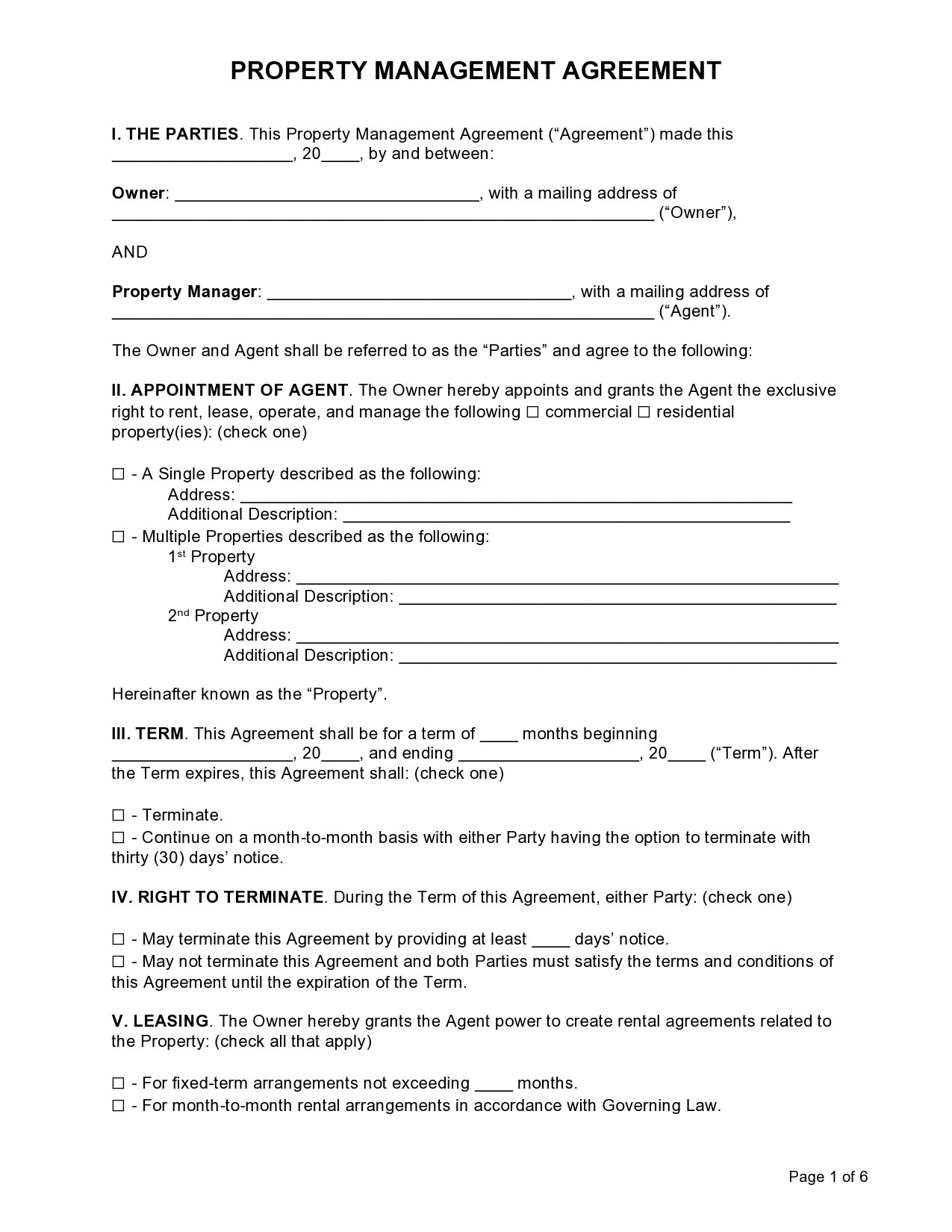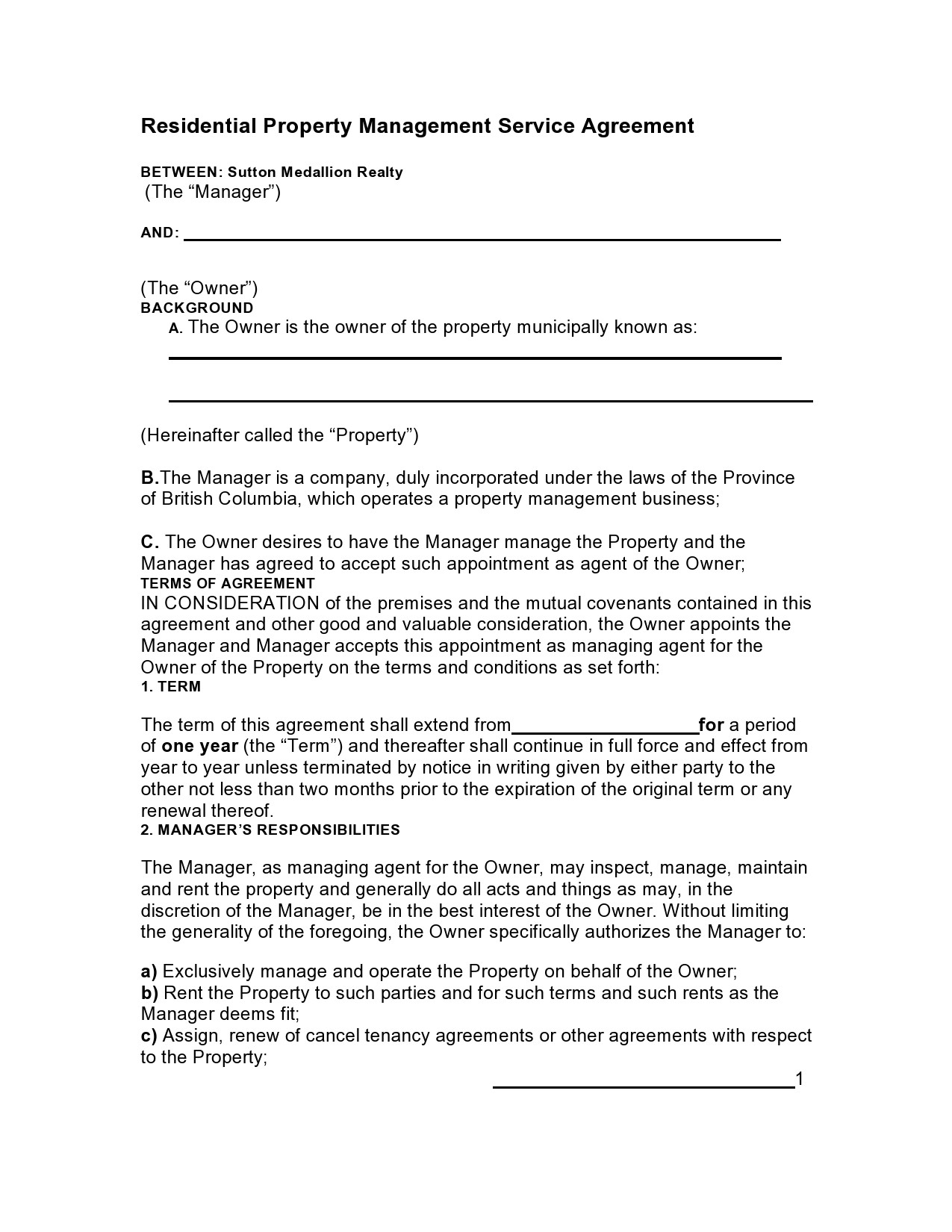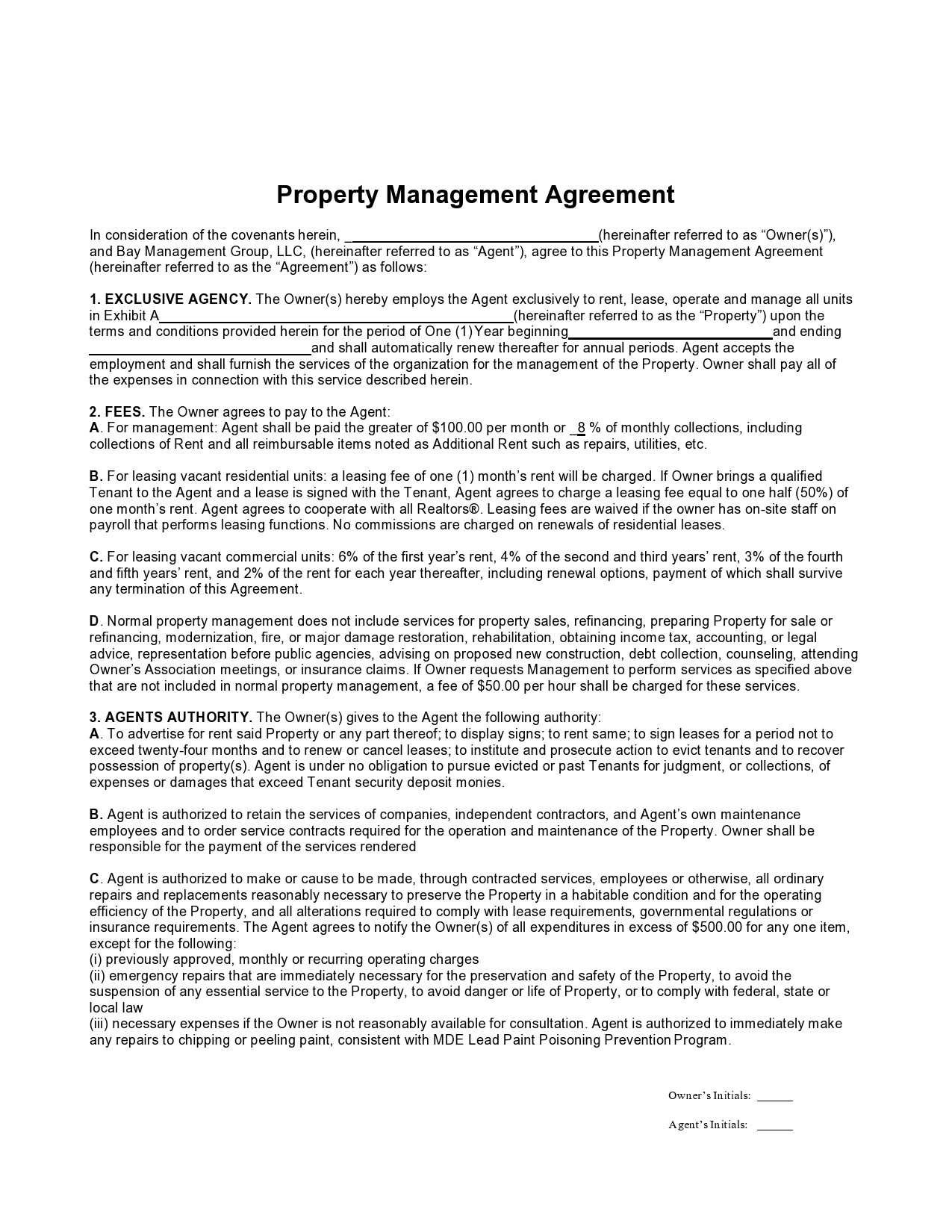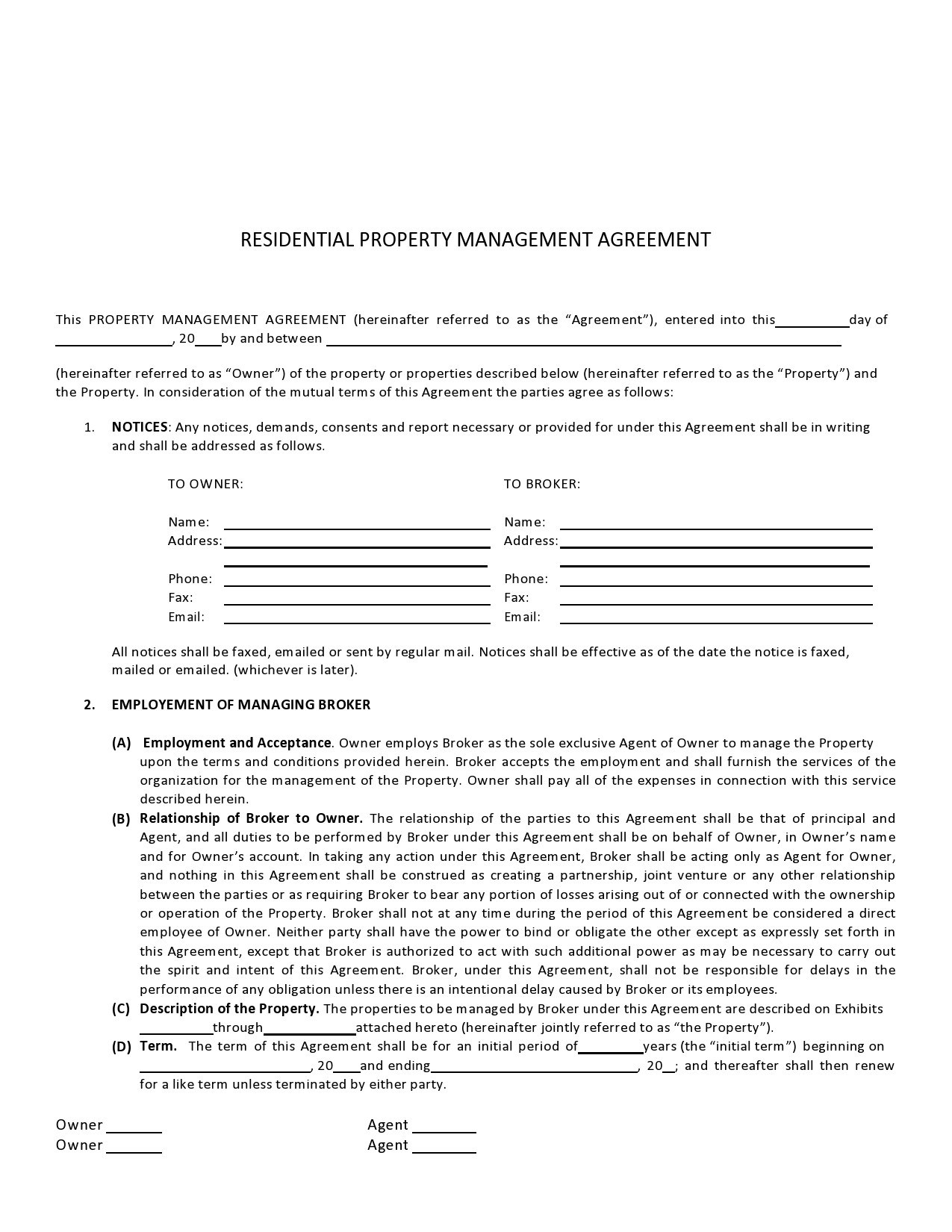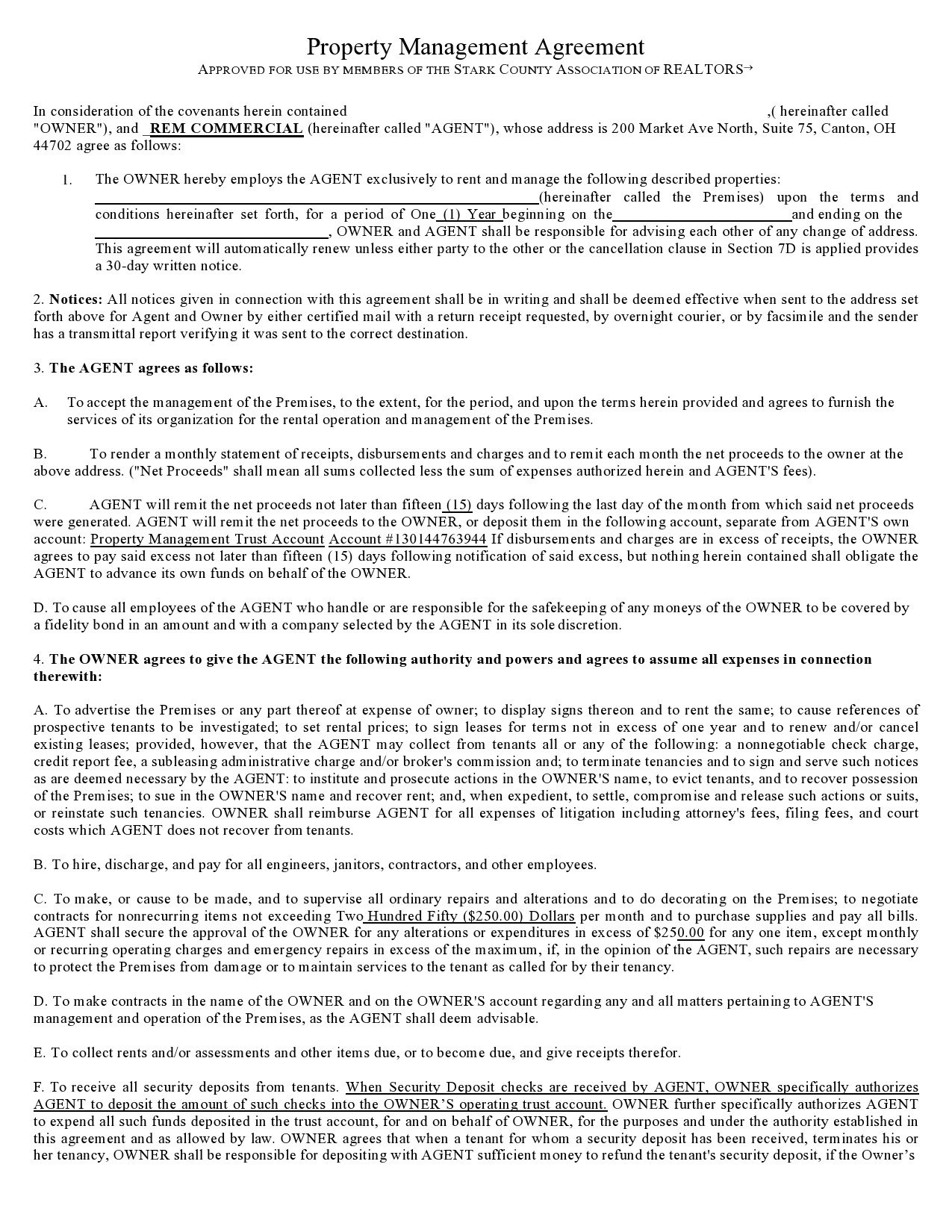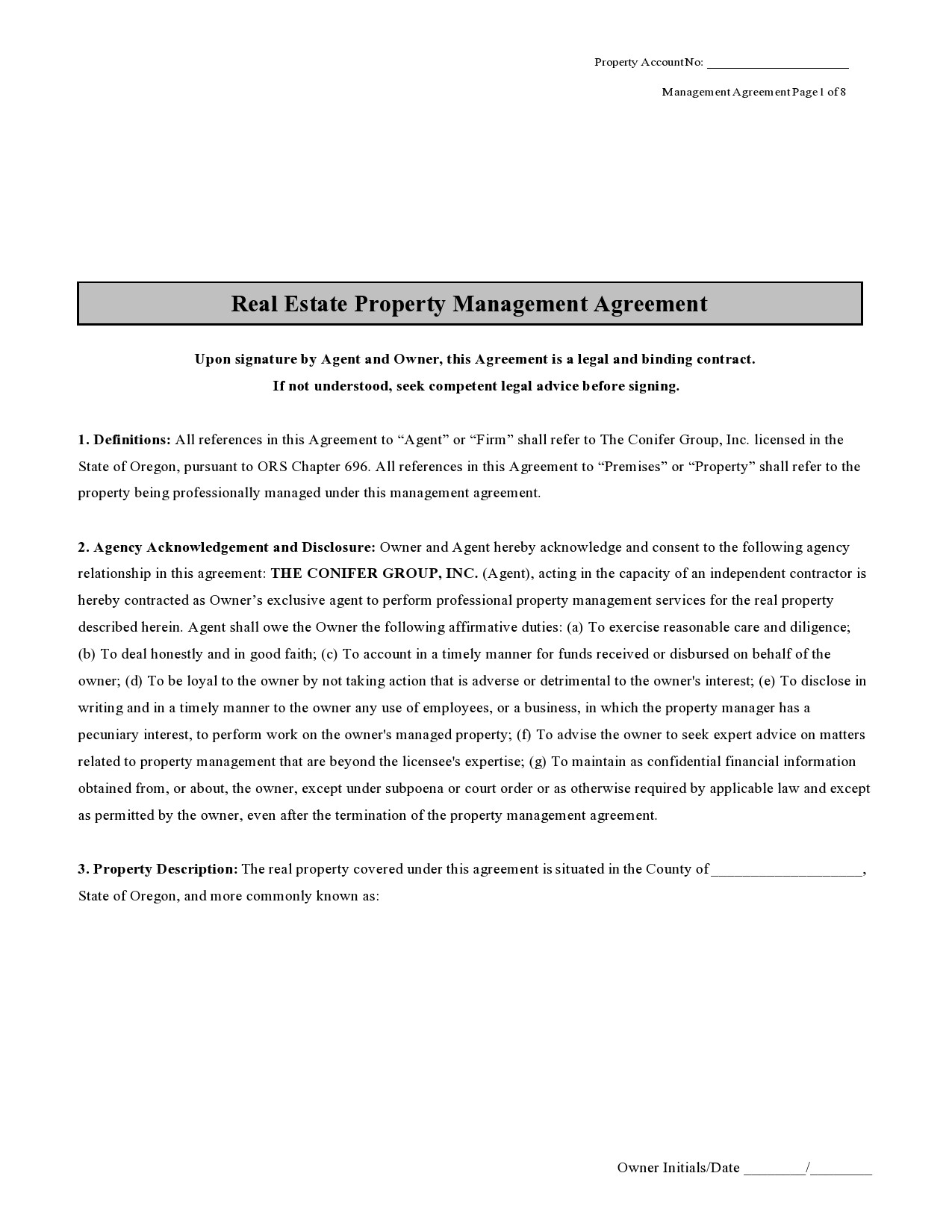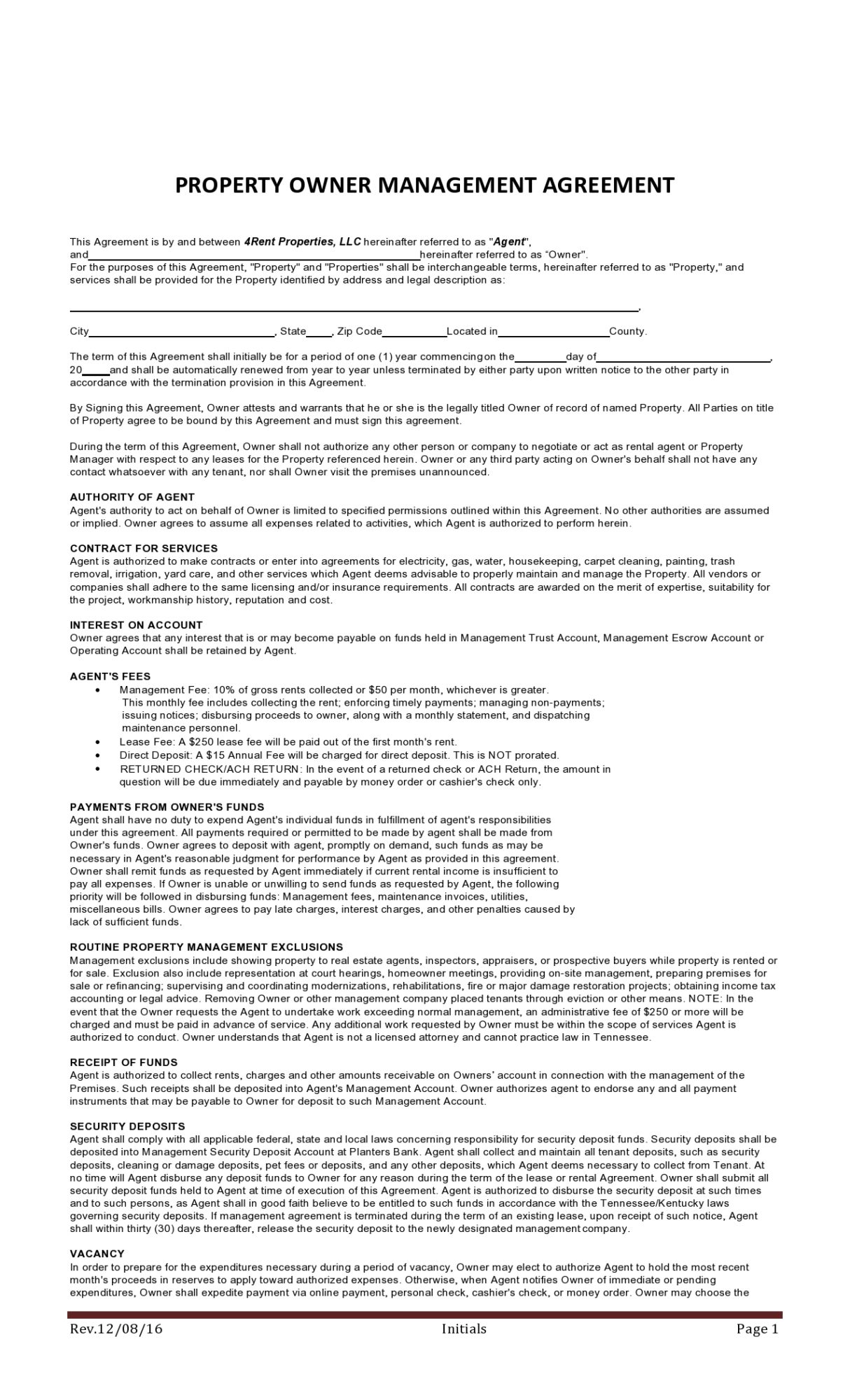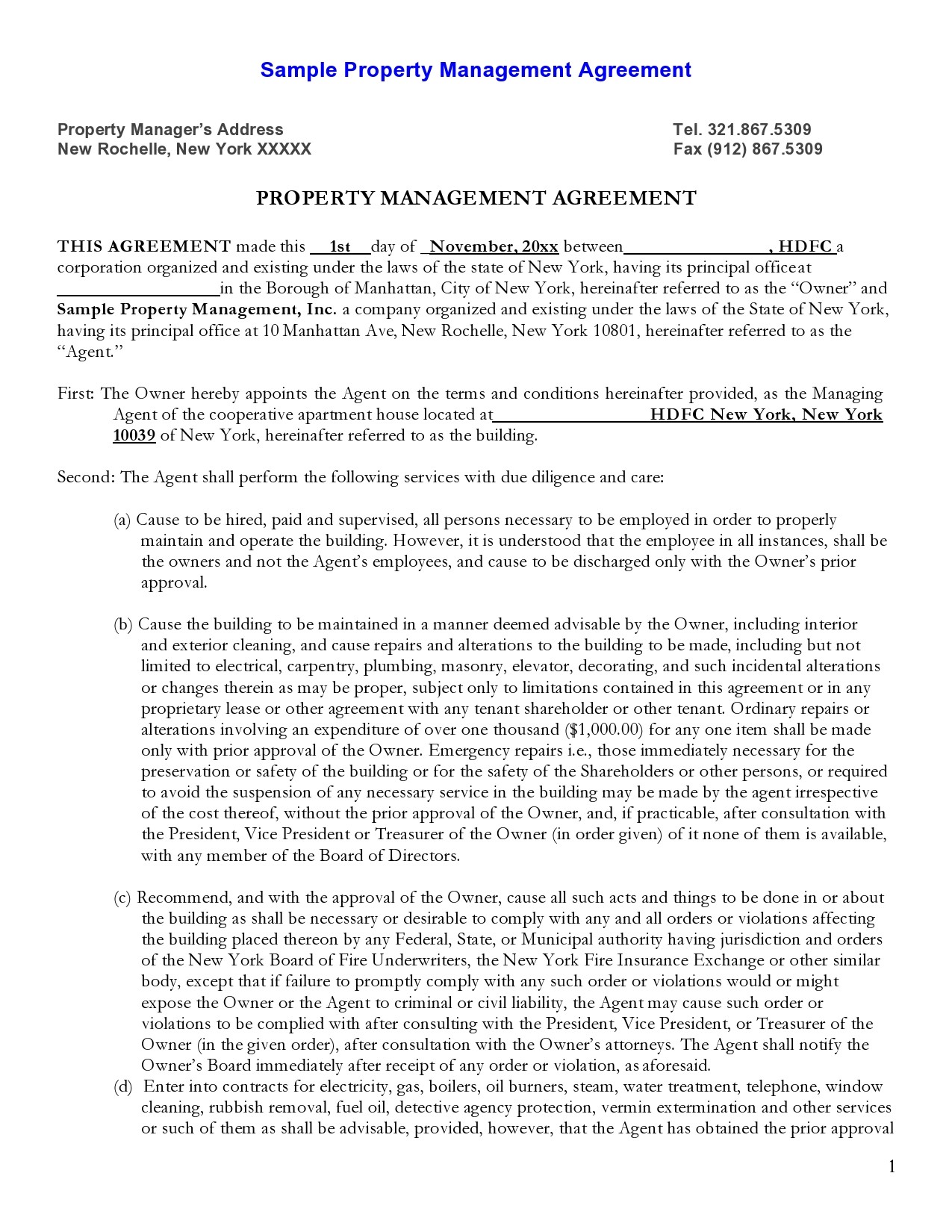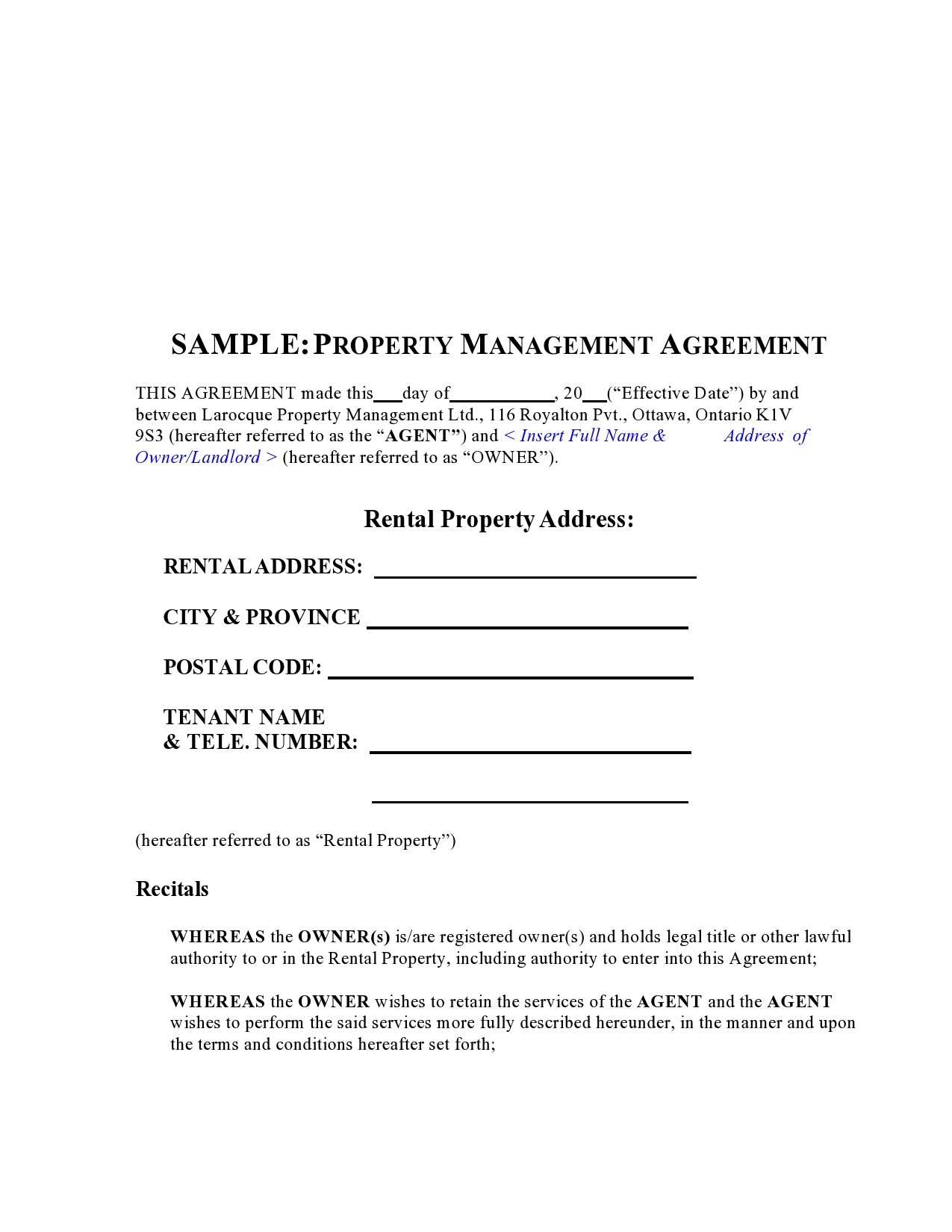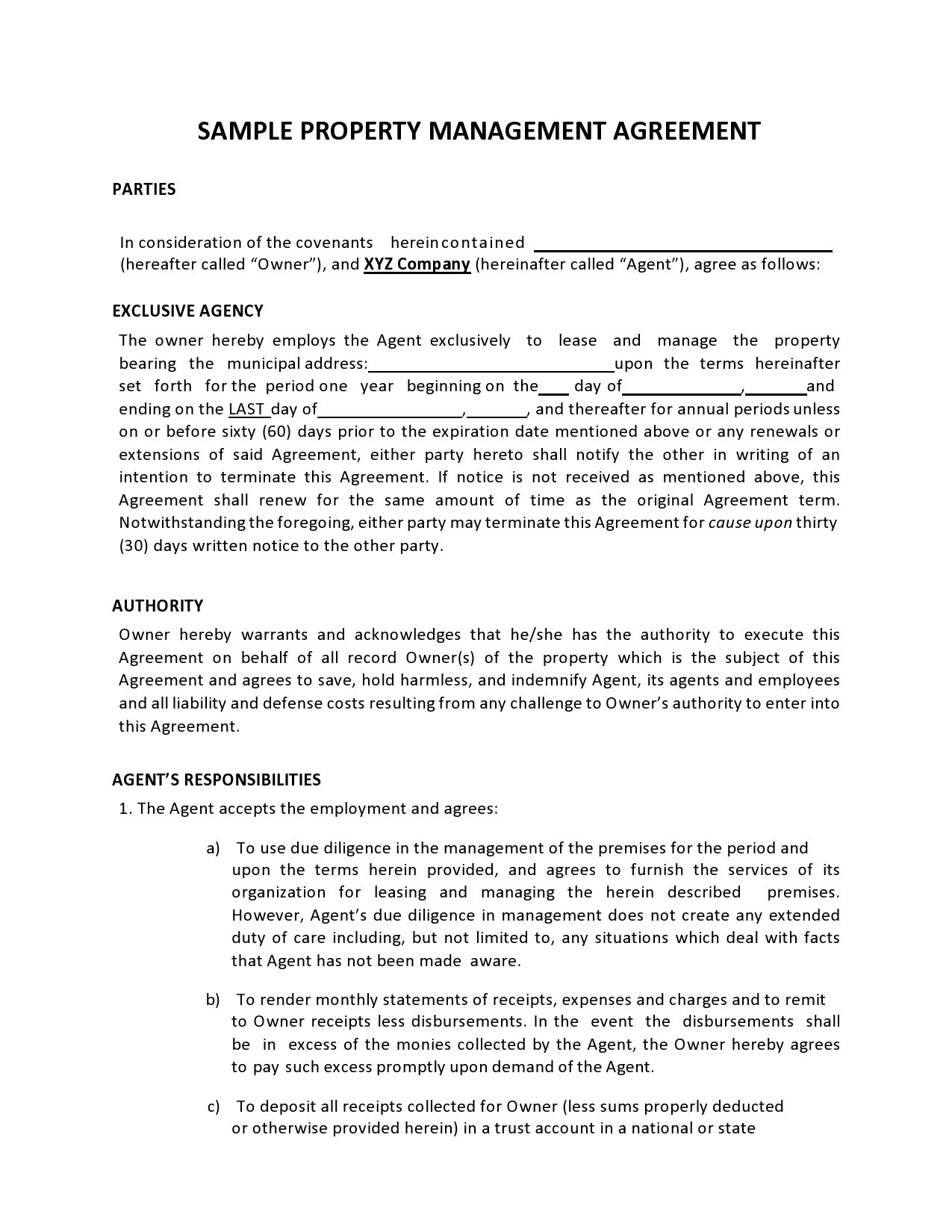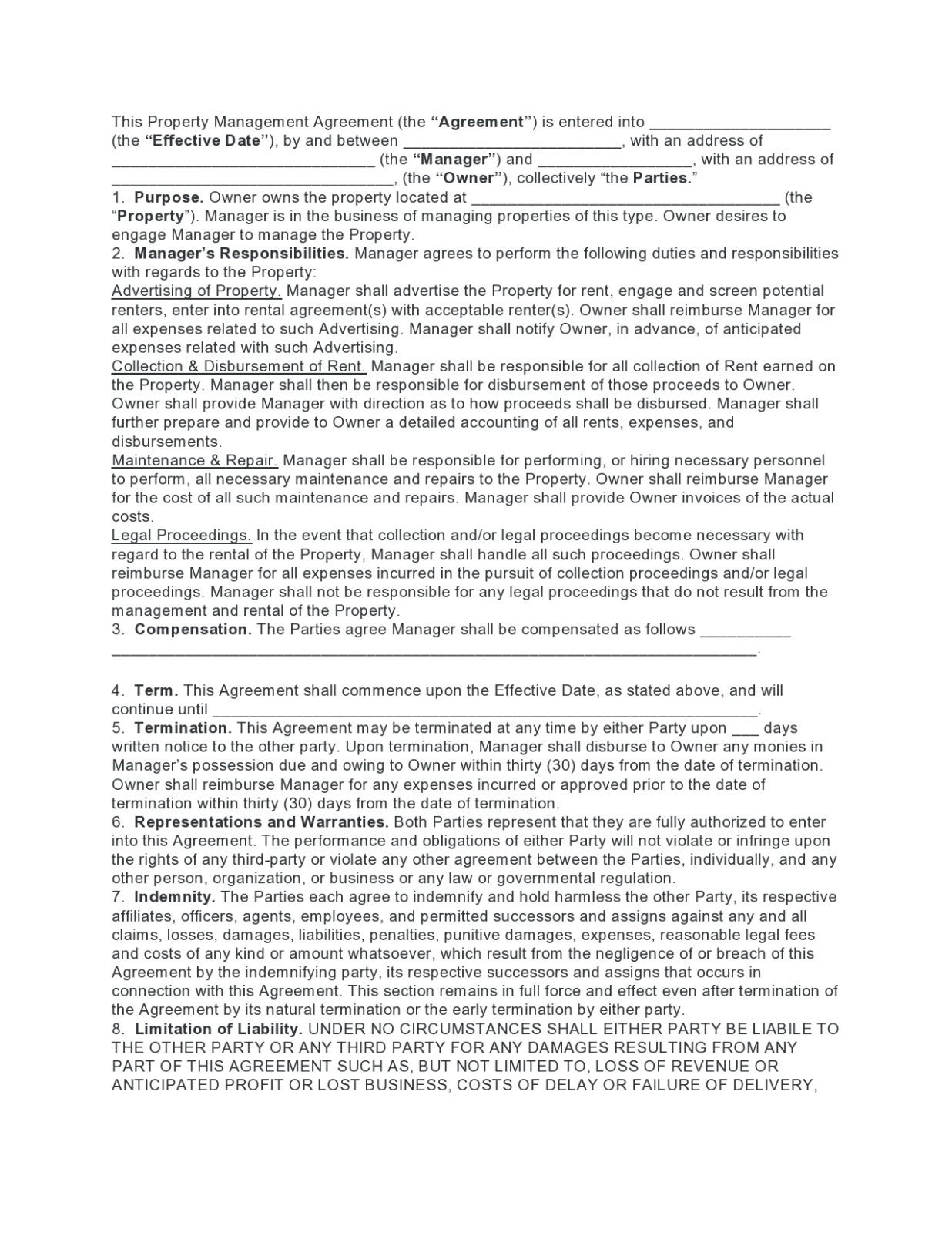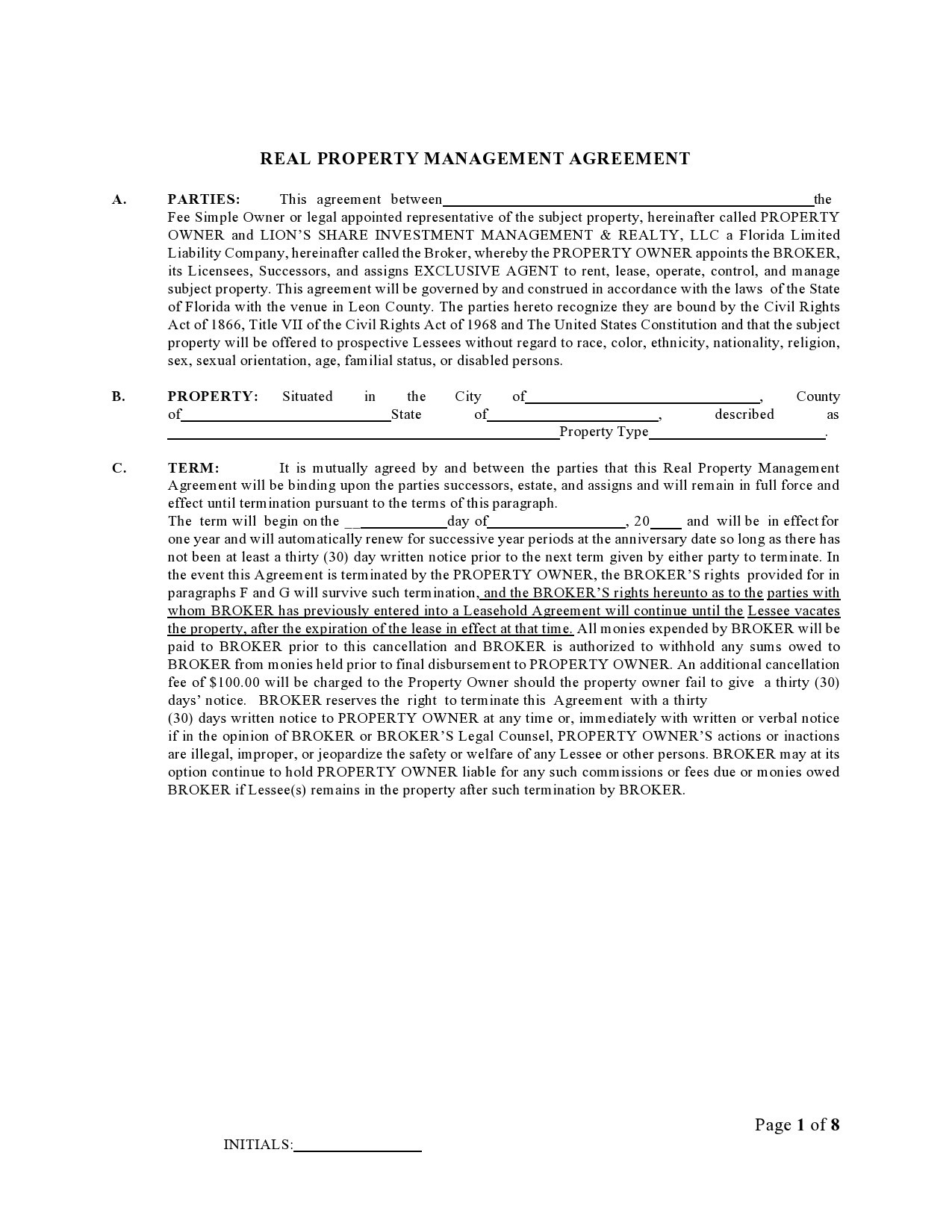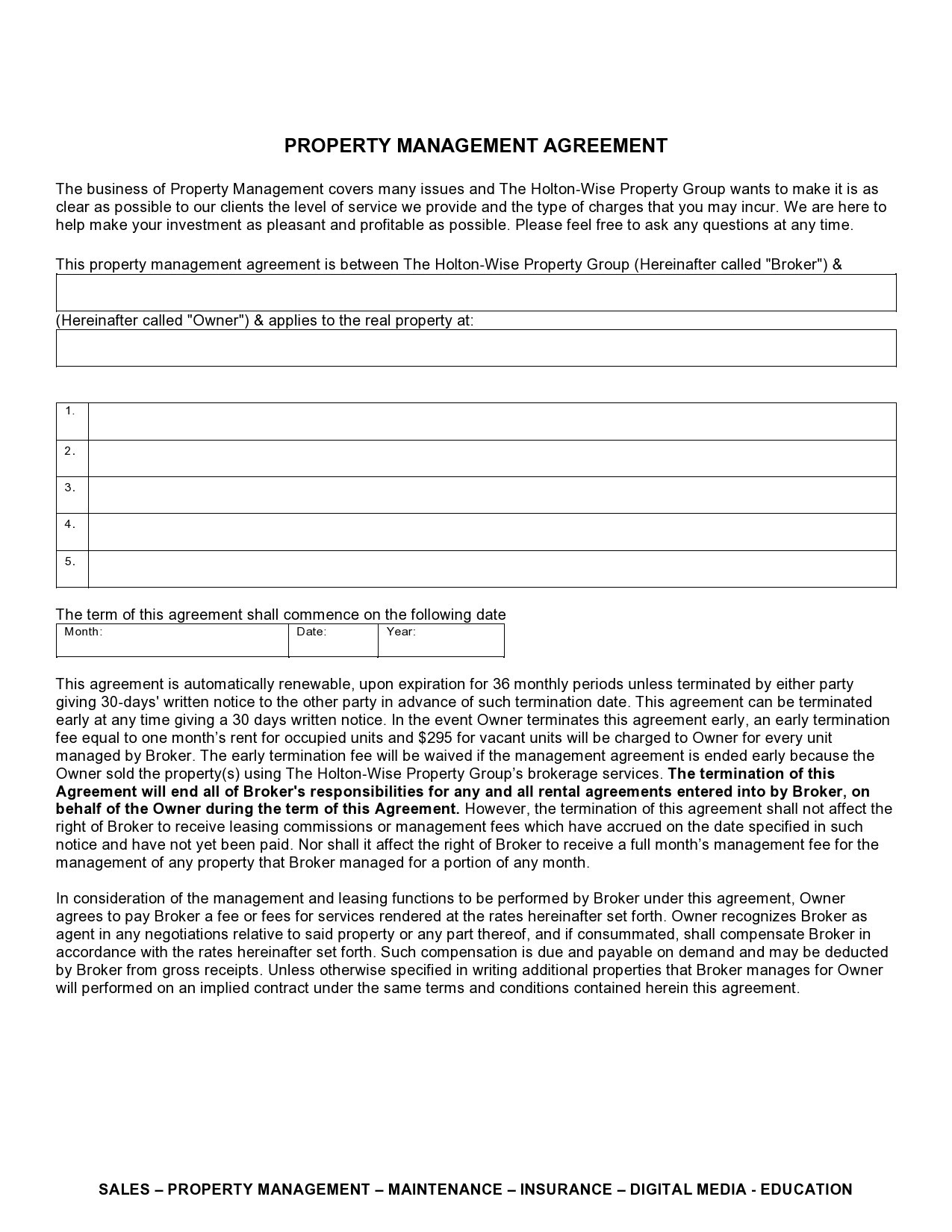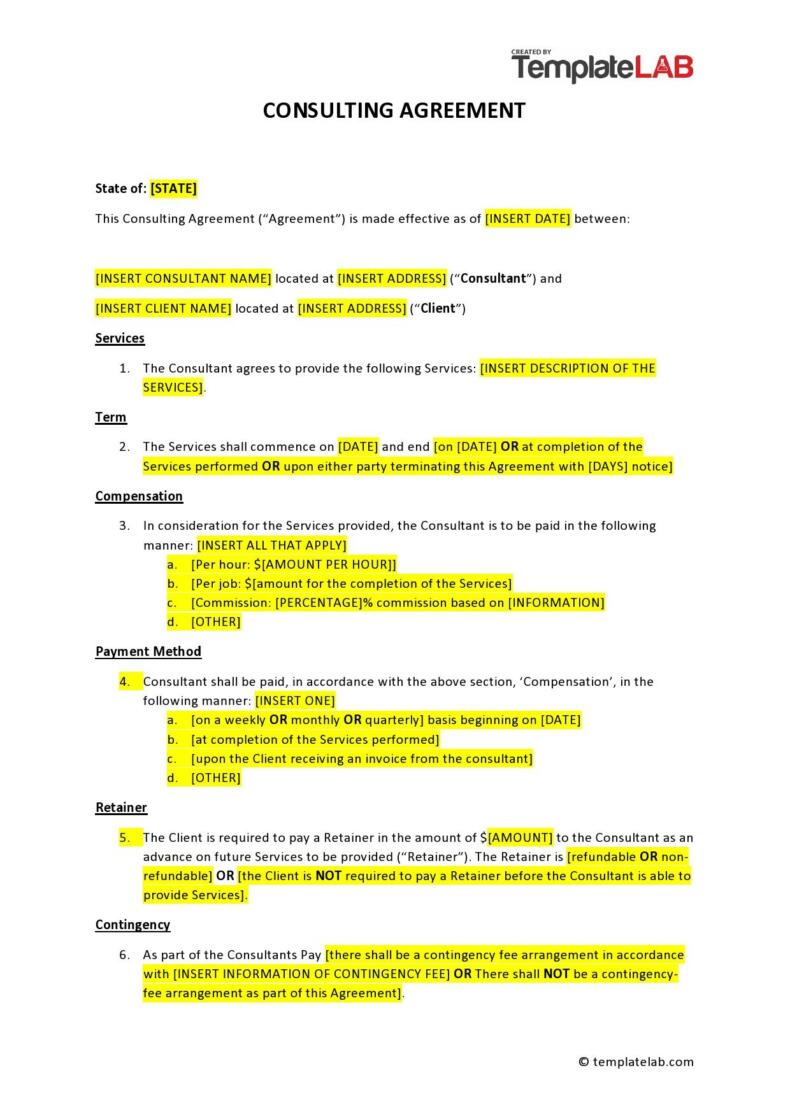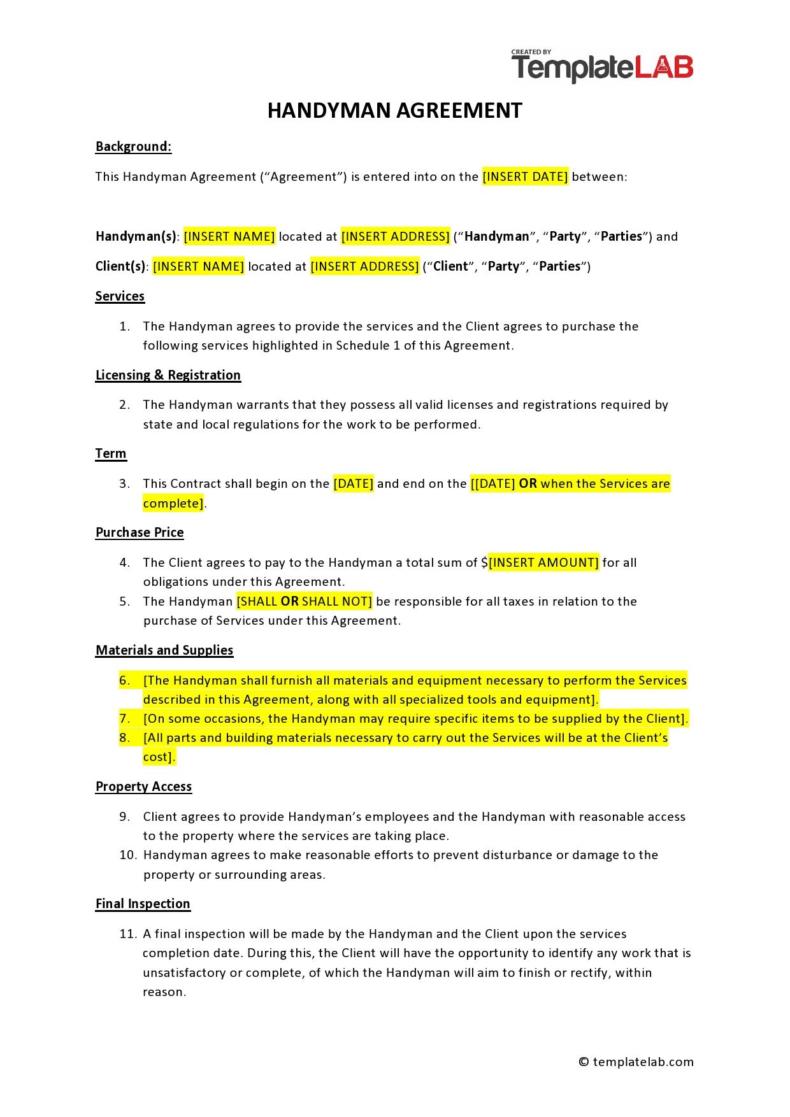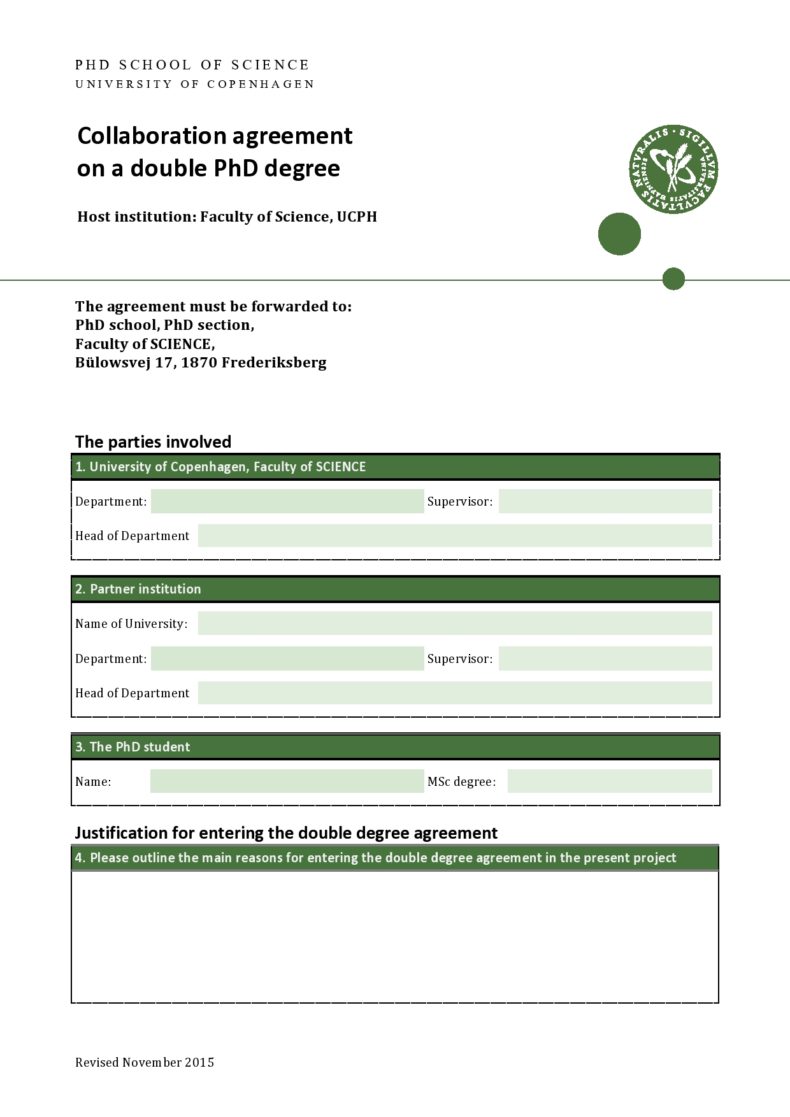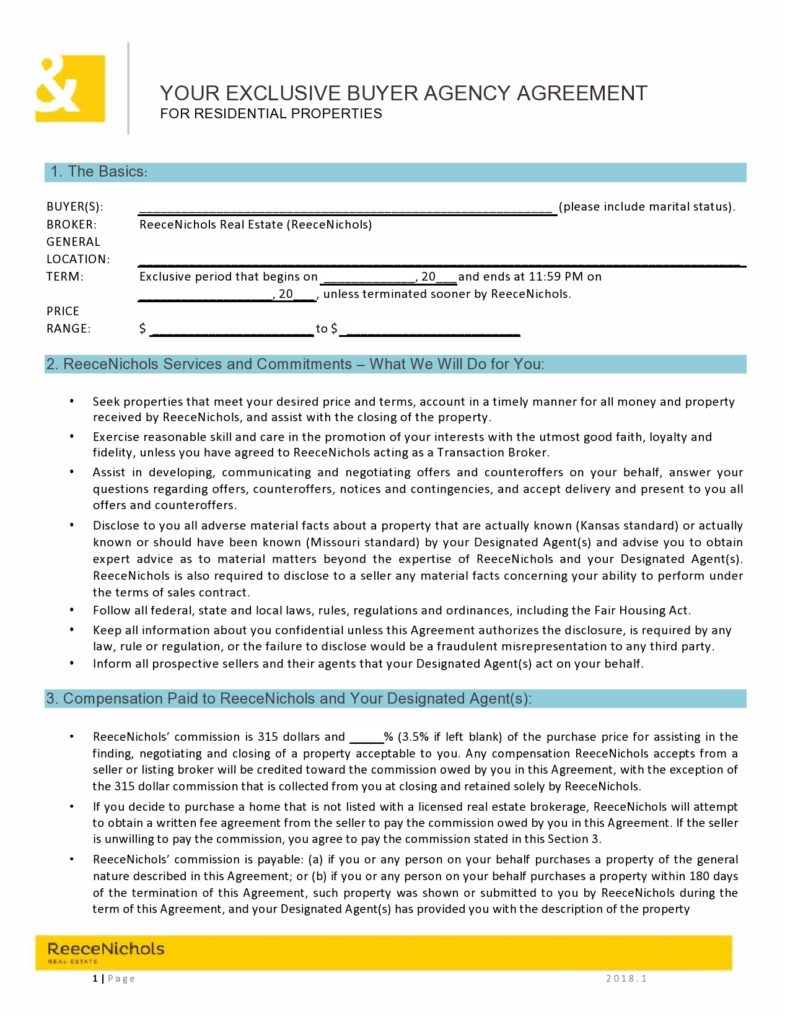If you manage a property, you will need to know how to write a property management agreement. This is one of the most important documents that you can learn to make for this kind of business. This kind of property management contract is a key part of your property agreement process, and it is the only way to responsibly hire a property manager or to be hired as the property manager. Property management is a complex process, and you cannot hope for a handshake agreement to be good enough for this need.
Table of Contents
Property Management Agreements
By State
What is a property management agreement?
This document creates a contract between a property owner and a company or a person that has been hired to manage the property in question. The contract will cover all the responsibilities of a management company that is to be taken on by the property owner. Management companies do not all provide the same services, which means that this document needs to be correct and custom-made for each kind of agreement that you want to enter into.
Property management contracts offer the following benefits:
- Responsibilities of each party included in the agreement
- Information about insurance coverage that must be in place for each building
- Information about how to break the contract
- Information about the property in question
- Provides a definitive timeframe for when each party has to give the notice to terminate the contract
- Answers liability questions
These details all make the relationship between the two parties clear and easily defined. You can use this kind of document for both commercial and residential properties as well.
Property Management Contracts
What is the purpose of the management agreement?
A property management agreement form is used to define the relationships between the two parties involved in the property management agreement. There are many details that need to be included in this document to make sure that both parties are clear about the nature of the relationship between the two parties. Without this agreement in place, it can be very hard to determine what the nature of the relationship needs to be and what needs to be done by each party involved.
Property management agreements are essential in the process of handing off the care of a property to another entity or person. You will find that this document is critical to any relationship of this nature, and you will need to be sure that you know how to write this kind of document correctly.
Property Management Templates
What does a property management agreement typically include?
This agreement needs to be drafted correctly, and it needs to have the right information included to have it be effective. This is a document that you cannot write without some idea of what you need to include, which is why this guide can be such a big help to your work.
- Names of the Two Parties. You and the other parties involved in the contract need to be named by full legal name, and their addresses and phone numbers need to be at the top of the document as well. Make sure that you are not using any nicknames or shorthand versions of the names of the people involved. This can invalidate your document and lead to it being useless for your needs when you want to turn to it.
- Information About the Property. The property itself needs to be carefully described in this part of the contract. You need to provide the address of the place, the details of the location’s use, and any information that you feel is necessary to correctly define the property and identify it. Without this information, you could be speaking about any property, which is not acceptable. Not having any information about the location in question is a major issue that will usually invalidate the contract completely.
- Services. The services that are to be provided by the management company need to be outlined carefully in this part of the document. You will need to indicate if the management company will:
- Do background checks
- Manage landscaping
- Take care of rent payments
- Maintain buildings
- Advertise for open spots or apartments to rent
- Evict tenants
- Check on compliance with the rent contract
- Services That Are Not Covered. There might be services that you do not need a management company to provide. The management company might also not want to take care of specific services. This will need to be discussed and carefully documented in this secondary part of the contract. This is just as important to define as the services that are included in the contract. Services that are not covered are often things like background checks or evictions. Some companies do not have the right hands on deck in your local area to take care of in-person visits and services, and you might need to have another company handle the actual work on the landscaping and other local services.
- Fees. The fees that need to be covered or transferred between the two parties involved in the contract need to be outlined in this part of the document. These companies tend to work based on a flat fee per month per service, but sometimes the fees are handled per booking or as a percentage of income per month. There are various ways to take care of the fee portion of the arrangement, and you will need to be sure that the fees are carefully defined so that there is no confusion between the owner and management company. The fees need to be competitive with the current market, and you cannot usually charge more than the current market will bear. This is one of the key reasons that contracts are often broken, so be sure that you are not starting off on the wrong foot by forcing your property owner to pay a really steep set of fees that they might not be able to afford.
- Responsibilities. The things that each party involved in the contract need to take care of need to be outlined in this part of the document. You need to be sure that all of the information about the jobs of the owner and the jobs of the management company are laid out thoroughly. You do not want there to be any questions about who is to do what within the contract. This is the place to make all of this information really clear to everyone who is signing the agreement. Fund allocation and other money management information need to be included in this part of the document as well. This can be key since the owner of the property often needs to be responsible for this part of the work. Many people incorrectly believe that the owner does not have to manage this part of the care for the property.
- Property Owner Limitations. Property owners cannot do everything, which is the reason for the agreement in the first place. The property owner cannot write contracts that the management company does not want to use. Property owners cannot rent out units within the property without working through the management company either. There are also jobs that are laid out earlier in the document that cannot be passed on to the owner by the management company. These limitations make it clear what the owner cannot do and should not do so that there are no issues between the management company and the owner.
- Contract Length. The length of the contract is included in this section as well. The standard length is one year. This part of the contract is critical so that both parties know when to renew the contract. Standard fees might increase or decrease over time if the contract is renewed.
- Termination. The termination of the contract needs to be explained in this section. The owner and the property management company both need to know how to break the contract if this should be required. This clause protects both of the parties that are involved in the contract. This clause also protects both parties from actions to break the contract that is not allowed. The process of breaking up this kind of relationship needs to be done correctly for the sake of the owner of the property, the tenants, and the management company as well.
- Liability and Compliance. The liability of the contract states all the information about the liability and indemnification related to the agreement. This part of the document stipulates what the management company’s liability will be as well as the owner’s liability when claims need to be made against the property. Property managers can often take care of these issues and conflicts, but they might not actually be liable for the concerns that have caused claims against the building or the management company. This section of the contract also states who is liable when certain kinds of accidents happen. Tenants might also break their lease and cause financial distress to the building owner, and this can lead to another kind of liability. Compliance is often legal in nature and has to do with the tenants and their actions toward the property. This section can also help to define the management company’s responsibilities as related to compliance itself.
- Funding. Funding and advances might also be part of the daily operations of the property. Both the owner and the property management company are involved in this part of the process of caring for the property, and their joint responsibilities need to be listed carefully here.
- Governing Laws. Governing laws will be state and county-dependent. You might need to be sure that you talk to a lawyer or a legal expert to finalize this section. Making sure that you are referring to the right information about the actual laws that impact the agreement is important for many reasons. You cannot cut corners when crafting this part of the document.
- Signatures. Both parties involved in this agreement need to sign and date the document. Make sure that all parties involved sign as well. You cannot leave out anyone’s signature for the document to be legal.
Property Management Forms
Both property owners and property management companies need to be sure about their duties with regard to the property management agreement. Handshake deals are rarely a good idea between parties that are working on caring for a leasing a property, and a management agreement is absolutely essential to taking care of tenants and caring for a property at the same time. Property management needs to be handled equally by the efforts of the property owner and the management company that has been hired to care for a location.

